#青玉案·元夕
Explore tagged Tumblr posts
Text
青玉案·元夕- Green Jadeite Platter · Fifteenth Day of New Year
by 辛弃疾 (Xin Qiji, 1140 to 1207)
东风夜放花千树, dōngfēng yè fàng huā qiān shù, In the East wind, night sets blossoms on a thousand trees,
更吹落、星如雨。 gèng chuī luò, xīng rú yǔ and blown down, stars fall like rain.
宝马雕车香满路。 bǎo mǎ diāo chē xiāng mǎn lù Fine horses, exquisite carriages, fragrance suffuses the road in their wake.
凤箫声动,玉壶光转, fèng xiāo shēng dòng, yù hú guāng zhuǎn The phoenix-flute’s moving melody, the jade-pot’s arcing light;
一夜鱼龙舞。 yī yè yú lóng wǔ lanterns of fish and dragons dance through the night.
蛾儿雪柳黄金缕, É er xuě liǔ huáng jīn lǚ Little moths, snow willow and tassels of gold,
笑语盈盈暗香去。 xiàoyǔ yíng yíng àn xiāng qù. laughter, chatter, bright and clear, indistinct scents fading as they go.
众里寻他千百度, zhòng lǐ xún tā qiān bǎi dù, In the crowd, a hundred, a thousand times, I searched;
蓦然回首, mò rán huí shǒu, suddenly turning round -
那人却在,灯火阑珊处。 nà rén què zài, dēng huǒ lán shān chù but there - that person stands where the lights are dimming.
………………………………………………………………..
Notes
// First, a note: Super glad @liberty-or-death also feel in love with this poem (translated here) which has inspired so many others out there, be it songwriters, authors or poets with its romantic atmosphere <3 Open invitation to share your take on this one too! There are so many ways to interpret it.
Aaaaaaaand we’re at the last day of Chinese New Year! \o/
08-Feb-23 Edit: I spent so much time looking things up for ‘one last word’ that it is no longer the last day of new year LOL. OOPS. So typical... xD
This time with a poem also about this time of the year with some lovely and vivid descriptions of how it was celebrated. I actually translated it in 2021 for a poetry sharing group read, and shelved it afterwards because I wasn't quite into it enough to write the usual comments. This time, I found the energy, because GUESS WHAT? Xin Qiji and Lu You (dude from the last poem about the first day of spring and the new year, my fellow cat lover) knew each other!
I was racking my brains trying to remember why Xin Qiji was such a familiar name when I came across it on Lu You’s baidu page LOL.
It’s not relevant to the poem, but do allow me to sidetrack a little on this.
Xin Qiji and Lu You were contemporaries of what we now call Southern Song. Xin Qiji was the younger between them by fifteen years; Lu You lived from 1125 to 1210, while Xin Qiji was born in 1140 and passed in 1207.
Xin Qiji was born in a territory that had been overtaken by Jin, his grandfather was unable to follow the Song in its retreat - for family reasons - and ended up working in the Jin court. [There’s background that I’m not including in here because it was shocking to read it again. You can google Jiankang Incident if you're curious, but I wouldn’t recommend it!]
As his father died early, Xin Qiji was raised by his grandfather whose influence had him growing up to be a patriotic and upright man, eager to restore the central plains and avenge the suffering of his people and country.
At the age of twenty one, he joined the insurrection against the Jin. There, he proved himself a skilled leader, earning a place in the Song Court with military merits. With the Emperor’s interest in restoring lost land, Xin Qiji and those of the faction which supported war against the Jin were given what they wanted at last and even won a series of victories. Unfortunately this was stopped in its tracks by a defeat due to infighting amongst the leaders of that campaign.
After that, the faction which supported peace via appeasement gained the emperor’s favour and Xin Qiji’s alignment with the side for war meant his proposals to this end went ignored. However, the court was impressed by his capability and frequently promoted him. This did not satisfy Xin Qiji though, and his identity as a returner from the Jins was a barrier to further advancement in his career. Anyway, he was eventually fired for ‘extravagant spending and wanton killing and other crimes’ when his work in the areas he oversaw began to encroach on the interests of the nobles and the wealthy people there. By this time, at the age of 40, he had realised his forthright nature was not earning him any points in politics and had made preparations to go into seclusion. He settled in Shangrao, northeast of Jiangxi province.
Between 1188 and 1203, he returned to take on some positions, got censured again, had more adventures and enjoyed the retirement life some more (especially in 1196! we might touch on this time in the future).
In 1203, he was brought on board again into politics as one of the people who believed war was the path to take. At the age of sixty four, Xin Qiji was made governor of two prefectures, Shaoxing 绍兴府 and Zhedong 浙东, simultaneously. It was during this time that he met Lu You, who had retired to his hometown of Shanyin. (Shanyin 山阴 and Huiji 会稽 Counties fell under the governance of Shaoxing Prefecture).
Shaoxing Prefecture 绍兴府, underlined in red.

(Source)
Shanyin 山阴, underlined in red.

(Source)
And just something that makes me smile from google maps: A Shanyin 山阴 road in modern day Shaoxing 绍兴!
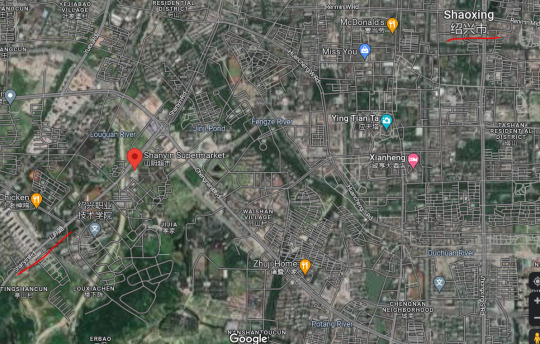
(Source)
And of course these two patriotic people would hit it off. Their acquaintance can be verified via Lu You’s poem 《草堂》 and his commentary. When Xin Qiji was summoned back to court in 1204 for an audience with the emperor, Lu You sent him off with a poem 《送辛幼安殿撰造朝》that was full of praise and encouragement.
Xin Qiji was made governor of Zhenjiang fu, a small official’s position elevated with the bestowment of a gold belt, but it was just behind the frontlines of the Jin-Song fighting at Yangzhou. That’s probably the closest he ever got to the action (and he knew it too).
Background
Unlike the one with Lu You where he so conveniently stated the year for us, it’s not possible to tell when Xin Qiji wrote this poem. Only that it describes a 元夕 (yuán xī), as they call fifteenth day of the first month. The name of lantern festival lit. 灯节 (dēng jié) only became popular from Qing Dynasty onwards.
But no matter the exact time this was written, I think it’s interesting to keep Xin Qiji’s life and his character in mind as we read his work!
Format and Title
This is a Song Dynasty lyric to the tune of 《青玉案》, or Green Jadeite Platter, with the 元夕 there telling us the time of year.
Poem
Sight
I’m reading the first line as 东风 / 夜放 / 花千树 [the East Wind blows] [in the night, placed] [flowers in a thousand trees] where 放 (fàng) is interpreted as ‘set (down)’ or ‘placed’ rather than ‘blossoms’. Reading as the latter, you can also understand it as ‘the wind from the East blows, and in the night a thousand trees blossom’. It’s not literally the East wind or the night that causes actual flowers to blossom. The East wind serves as a time marker and setting; in Spring which the new year begins in during Xin Qiji’s time, the wind from the east is relatively warm and melts the frost of Winter. As a traditional part of the Lantern Festival, Lanterns are hung in the trees. That’s why you can see them ‘blooming’ in the night. There, they are like glowing flowers. It may not even be trees! Maybe there are so many of them hanging that it feels like a forest. This is a visual description, all the more vivid for its metaphors.
The next line 星如雨, could be drizzling raindrops refracting light or sparks of fireworks from the sky. Fireworks were fully developed in the Song Dynasty, and there are even records of them being used in the time of Emperor Huizong of Song (1110) and Emperor Xiaozong of Song (1183), so either reading makes sense!
Smell
Why is there 香满路 fragrance permeating the street? Because carriages were perfumed with incense - not just carriages of course, but also the people sitting in them because the incense culture was just such a part of everyday life. They used these devices called Scent Balls 香球 to scent their clothing, their carriage or even a room. Only nobles or the wealthy could afford to use these at the time.

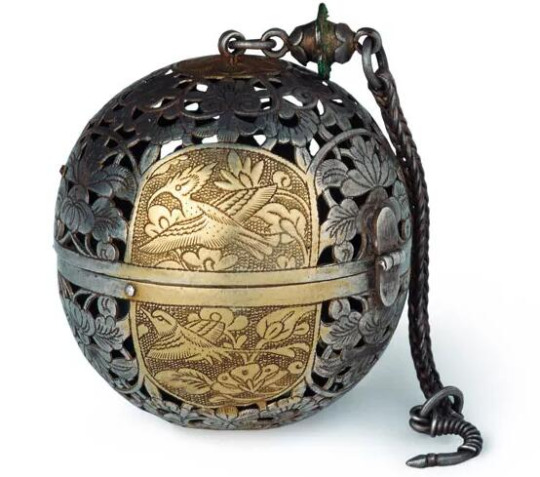
(Source)
Sound
The ‘phoenix flute’ 凤箫, referred to the panpipe, and was a prettier name for it - like comparing its melody to the trill of a phoenix. This is not necessarily saying that there is only the music from panpipes there that night, but could also be a fancy way of saying good music!
The phoenix flute 凤箫 panpipe (though that’s a dragon xD).

(source)
Jade-pot (玉壶), could be referring to the moon for obvious reasons…
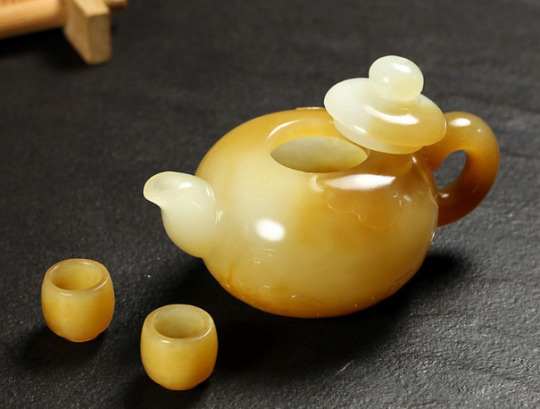
(Source)
It could also be another lantern!
And so I read 光转 as the movement of its light over people and things. It it’s the moon, maybe even the passage of time throughout the night… which then leads me to the last sentence of this half of the lyric.

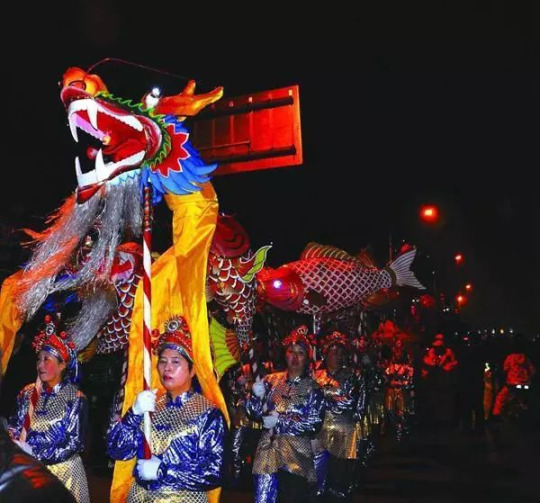
(Source)
Imagery & Time
It’s a very festive image. You can almost see the parade of the dragon and its fish under the light of the lanterns, and the crowd following along to see! This is a traditional part of Chinese New Year even now and I am delighted to know it was that way in the past as well.
Sights, Sounds, Smells
Now for the little moths, snow willow and tassels of gold. These are all seasonal accessories. To be exact, they refer to women’s hairpins. Where can these possibly be on the night of a New Year’s afterparty? On ladies’ heads of course!
This is a very cool post on clothing and traditions in the Lantern Festival. The title specifies the scope to be Ming and Qing, but there also also mentions of things that stretch further back. For example, ladies wearing 闹蛾 (playful moth) which is in the poem, is mentioned near the bottom of the post.
Here is a snip from 《簪花仕女图》Court Ladies Adorning Their Hair with Flowers, supposedly by Zhou Fang of Tang Dynasty.

(source)
Laughter 笑 (xiào) and conversation 语 (yǔ) are heard. The word 盈盈 (yíng yíng) or clear/beautiful describes these voices, and the faint, indistinct fragrance (as mentioned before, wearing scent balls was a popular practice, like perfume these days) that came with them gradually fade as they walk further away.
Space is limited in lyric and poetry, so a poet must be very sharp and apt in his choice of words, and wow has he done a good job! The first part of this lyric painted the backdrop of a festive night filled with luxury and beautiful things. Though metaphors, dare I say, to the point of exaggeration have made this picture vibrant and charming. What a lovely place to be!
The third sentence 蛾儿雪柳黄金缕 |Little moths, snow willow and tassels of gold, 笑语盈盈暗香去 | laughter, chatter, bright and clear, indistinct scents fading as they go. brings all the senses together, while drawing attention to ‘people’. The previous descriptions were all very indirect; lanterns they’ve put up, fireworks set off and observed, vehicles, music created under the light of the moon or lamps, and the dances. This feels like a zoom-in and building up of the already established lively atmosphere, the chattering young lady/ladies walking past brings a touch of life.
But just as quickly as they entered, they fade into the distance. And here is where there is a sudden change in tone. If this were a song, I’d call it the beat drop. We thought he’d been admiring and enjoying the night. Perhaps he is… but there was another important purpose to all this keen observation - a search for that one person in the crowd. Doesn’t this revelation cause an interesting shift in your perception of all that came before this? It did for me!
He’s looked and looked and looked to no avail. And maybe his sixth sense tingled, maybe it was happy coincidence, but after so much seeking, it turns out this person wasn’t with the crowd and the lanterns. They’d been behind him all along, and unlike the rest - standing where the lights were dim, in a quiet (perhaps run-down) corner.
Since the ‘beat drop’, there has been a relaxation of the pace. The poet lifted his foot from the accelerator for sensory input and extravagant descriptions, so it feels like I’m inhabiting this little moment, this island of peace, relief and touched delight. That feeling of simplicity and that someone I’d been longing to see without much hope, is There, reciprocates and had (maybe) been waiting for me too.
It was a beautiful night, but now it is a beautiful night.
………………………………………………………………..
I have such fondness for a passionate and sharply competent Xin Qiji with soft feelings for this world. His enjoyment of joyous celebration - and hey it may be a little opulent xD but these are his people and them being able to make music and dance through the night is something worth fighting for.
#青玉案��元夕#辛弃疾#this is a suuuuper beautiful poem#it's also super different from his usual style#or so i hear#commentary
32 notes
·
View notes
Text
A Queshan struck iron firework (打铁花; da2tie3hua1) performance to welcome the Year of the Dragon. Queshan struck iron fireworks differ from other iron fireworks due to the two-layered pergola and space required. This particular performance also features dragon dancing.
Please see my post here (my pinned post) for the full journey of how OP learned to strike iron fireworks as well as some other information and details about the art. (This is the video OP is referring to at the beginning of the video.)
*Before the countdown, OP is quoting the poem 青玉案·元夕 by 辛弃疾.
[eng by me + edited an ad out]
865 notes
·
View notes
Text
where the light is dim
Pairing: Malleus Draconia x gn!reader
Synopsis: everyone's wandered off in the festival, and you can't even find a familiar face
Tags: poetic themes, fluff, diasomnia shenanigans
Word count: 436
Notes: happy chinese new year everyone🧧🏮🎆!! this was heavily inspired by a chinese poem that takes place on new years (which i attempted a translation of below hehe), and plus it's the year of the dragon, so now we have mal mal festival time ( ╹▽╹ )
Masterlist

The east wind blows breezes a thousand blossoming trees,

The stars, like rain, descend like a gentle breeze.
Bejewelled carriages and fine horses leave a fragrant trail on the road,
Phoenix flutes resound in the wind, the jade lantern’s light flows,
All night, the fish and dragon lanterns dance.
Maidens adorned with gold, extravagant pins in their hair,
Smiling shyly, fragrance lingering in the air.
In the crowd, searching countless times,
Suddenly, turning my head,
There stands the one, where the light is dim.
―青玉案・元夕 辛棄疾
The street pulses with energy, vibrant and bustling beneath a canopy of scarlet lanterns that sway gently in the evening breeze. Each lantern, adorned with intricate designs and tassels, casts a warm, inviting glow that bathes the cobblestone pavement below in a rich crimson hue.
The air is alive with the hum of chatter and laughter, as locals and visitors alike meander through the thoroughfare, their footsteps echoing against the ancient brick walls that line the street. Vendors peddle their wares from colourful stalls, their voices competing with the lively strains of traditional music that drift from nearby taverns and teahouses.
'Where is he?' you thought to yourself, tired from the heavy ornaments painstakingly styled into your hair as you turned and turned your head to catch even a glimpse of him amidst the bustling crowd.
Malleus had invited you to a short trip to the Far East, prompted by Silver's longing to explore the lands of his childhood hero, and swiftly organized by Lilia's enthusiastic urging. You're not sure whether Lilia was aware of it or not, your travels happened to coincide with a grand local festival.
The street offers a multitude of intrigue, from mouth-watering scents from the food skewers to the delicate souvenirs hand-crafted by merchants, and it's not long before you find yourselves gradually becoming separated from the group amidst the bustling crowd. The allure of the vibrant surroundings pulls each person in a different direction, until eventually, you can no longer spot any familiar faces amidst the sea of glamorous outfits adorning the local ladies.
A whirring noise catches your attention, and you turn to the direction of the sound. Your gaze is met with the spectacle of fireworks illuminating the night sky, their explosions of brilliance painting the heavens with vibrant hues, scattering glittering sparks like diamonds. Brilliant reds, dazzling blues, and alluring golds intertwine and collide, creating a breathtaking tapestry of colour that captivates all who gaze upon it.
It's a view you want to share with him.
You weave through the crowd once again, deftly sidestepping opulent carriages and elegant ladies. Their alluring perfume mingles with the joyous melodies of the flutes, enveloping you in a whirlwind of sensation that leaves you momentarily dizzy.
A glance down a narrow alley catches your attention, and in the distance, a lone lantern flickers. Squinting to sharpen your focus, you realise you've found the very person you're looking for.
Malleus, tucked away in the shadowy corner, his focus fixed solely upon a weathered lion stone statue.
You can't help the exasperated smile that graces your lips.
Maybe you should've expected that.
Masterlist

if you liked this post, don't forget to reblog!
#twstnexus#twisted wonderland#twisted wonderland x reader#twst imagines#malleus draconia#malleus draconia x reader#twisted wonderland malleus#twst malleus#twst malleus x reader#diasomnia
423 notes
·
View notes
Text
the tradition of babies with bowl cuts lives on

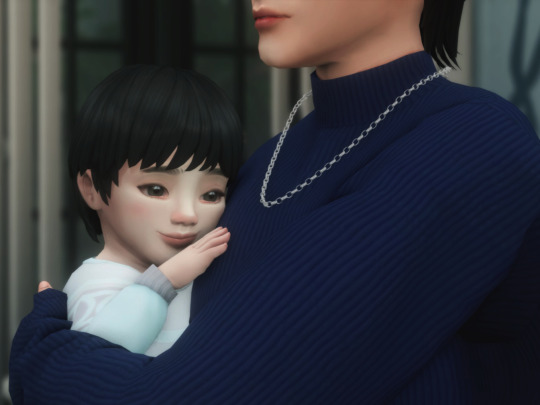

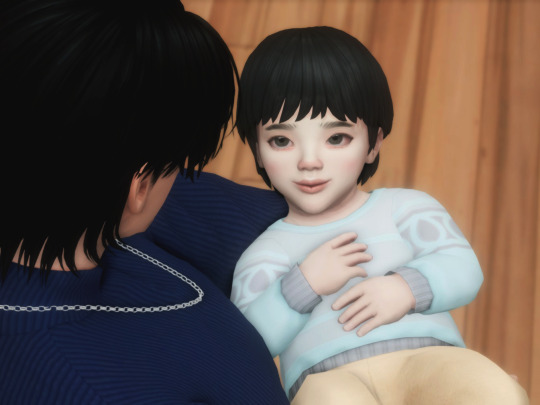
sorta?? spoiler for my story ig?? Anywho, yeah they'll eventually have twins, hat boy is Haoxing(昊星) and non-hat boy is Minyu(旻雨)
the names arent final i just felt like seeing their babies in advance cuz of @occultradio 's simblr baby fever 🤭🤭🤭🤭
[trivia: the 2nd character for both their names is taken from stanza "更吹落,星如雨" from 《青玉案·元夕》 aka the same poem the title of my story (灯火阑珊处) is named after]
#eye genetics were fucked so i gave haoxing greenish eyes for ivris#and minyu ying's grey ones#im probably not gonna use this file after this just bcuz im not there yet in my writing#buuuut i might age them up for funsies too :]#xian: oc lore#oc: ying#oc: ivris
58 notes
·
View notes
Text
In honor of it being Lantern Festival, here's my lil contribution/fic idea where Di Feisheng and Fang Duobing find Li Lianhua on Lantern Festival.
The vibes of this idea are based off this line of Chinese poetry 眾裡尋他千百度。驀然回首,那人卻在,燈火闌珊處。(In the midst of the crowds I sought after him for a long time. Abruptly I turned back, and that person was there, standing where the bright lights didn't shine) from 青玉案 元夕, which is a piece of literature that describes the festive streets and atmosphere of the celebrations for Lantern Festival.
21 notes
·
View notes
Text


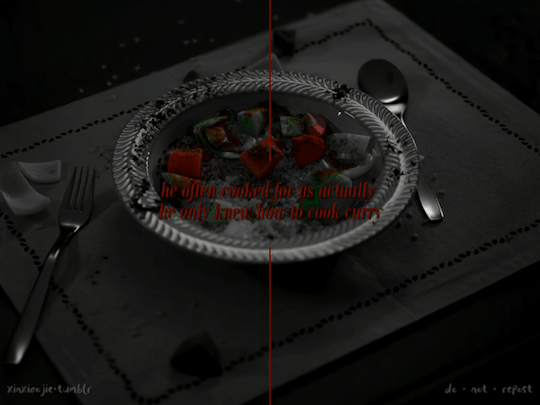
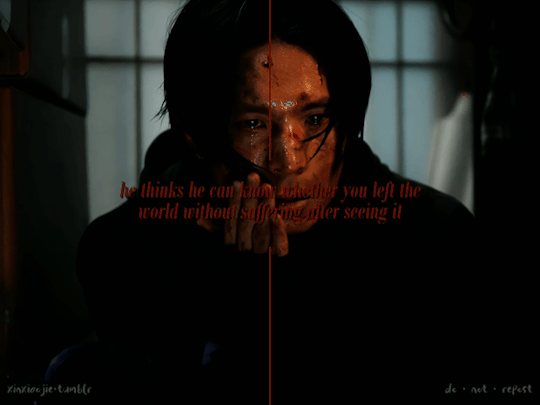


日出日落 镌刻阑珊 捨吾有型 生死无关 · Sunrise, sunset, engraved remanent, abandon my form, put life and death behind. The elegiac couplet here signified the Chinese guardian lion's life.
日出日落 richu riluo · Sunrise, sunset
Refers to the decades he has lived carrying prayers from the people.
镌刻阑珊 juanke lanshan · Engraved remanent
The idiom 灯火阑珊处 denghuo lanshan chu comes from 青玉案·元夕 Qingyu an· Yuanxi by 辛棄疾 Xin Qiji, to describe a place as disordered and withering where little light reaches. The guardian stone lion was once worshiped is now sunk to the bottom of the river where the sun never sees.
捨吾有型 she wu you xing · I sacrifice myself, my form
In EP2 he says, “The strength of human heart is much stronger than skin, bones and flesh”. He was born out of people's worship, but as time passed, it faded away. He no longer serves his original purpose. However, Zheng Lisong’s obsession summoned him from the bottom the river once more.
生死无关 shengsi wuguan · To put all life and death behind
Final words to release him from his burdens as a guardian. He will never have to bear the responsibilities of life and death for those who had previously bestowed their wishes upon him.
#oh no! here comes trouble#oh no here comes trouble#不良執念清除師#不良执念清除师#twdramaedit#asiandramasource#dailyasiandramas#cdramasource#dramasource#twdrama#taiwanese drama#caps#ep2/3#zheng lisong#Yao Chun Yao#jack yao#pu yiyong#Tseng Jing Hua#chinese stuff#i swear pu yiyong and i share just about the same amount of literacy skills i bet he doesnt even know what the couplet mean just like me#this whole thing is my own interpretation hopefully gives some insight since the subtitle didnt translate this part#i have chinese literacy skills of a 5yrs old so bare with me *flicking through chinese dictionary like no tomorrow*#anyhow lisong's segment hit me hard 报喜不报忧 tell the good and keep the bad is a proverb about not telling your parents your sorrows#so they dont worry about you even down to wanting to hide his body so his parents dont see and guess his suffering#even while having no memories he still return home to cook curry for them and bow down to them#another proverb: there are gold on your knees. therefore you do not bow down to anyone easily so the significance here is substantial
121 notes
·
View notes
Text

秋旅2023 東北散策 - リゾートしらかみ
昨年、豪雨被害で断念となった五能線 リゾートしらかみに再挑戦してみた。
青森-秋田間を絶景の五能線経由で結ぶ観光列車 リゾートしらかみ。本当は昨年夏の東北旅行の目玉になるはずだったのですが…、直前 および当日の豪雨によってお流れして���まい(涙)誕生日休暇を利用してこの度、リベンジしてみました。
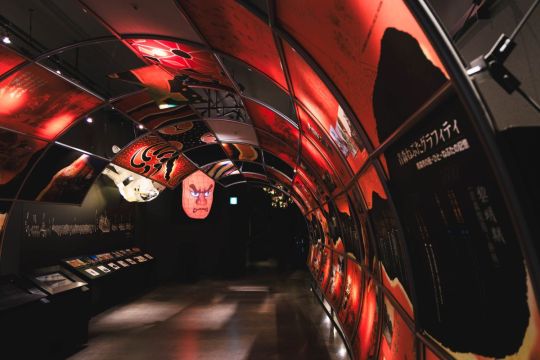

都内から東北新幹線で新青森、そこからリゾートしらかみの始発駅 青森駅へ。午後の青森発 秋田行のリゾートしらかみ4号が今回のお目当て。お昼少し前に青森駅に降り立ち、少し時間があったので、ねぶたの家 ワ・ラッセを訪問。こちらも本当は昨年の夏に訪れてみたかったのですが、ちょうど展示入れ替えのための休館日に重なるというバッドタイミング…、事前調査不足でしたね。今回はちゃんとオープンしていることを確認した上での再訪。大迫力のねぶたを見学。津軽煮干しラーメンをすすってお腹を満たしたところ、ちょうど程よい時間に。お酒とおつまみを調達し、いざ青森駅ホームへ。

リゾートしらかみは、3つのタイプの列車(橅・青海・くまげれ)が存在し、今回 私は最も新しい橅編成を狙いリゾートしらかみ4号をセレクトしたのですが…、車両故障の影響で選ばらえたのは国鉄気動車を改造した「くまげら」君。最初に目にしたときは結構ショックでした…。まあそういうこともあるよね、仕方がない(かわりに貴重な国鉄車を楽しもう)、と指定した先頭車両 海側最前部の座席につこうとしたものの…、編成変更に伴い指定された番号の席が存在しない!車掌さんに確認し、代わりの席に案内してもらいました。一応 海側の窓際席を用意してくれてはいたものの、中間車両の最前部で見通しがあまりよくなく、足元も(他の座席と比べると)狭めという…。どうやら私はリゾートしらかみとの相性がよろしくない模様。
あまりネガティブになっても勿体ないので、今の状況を存分に楽しもう!起きたことを後悔するのではなく与えられた状況をいかに楽しく過ごせるかも才能のうち、とポジティブに考え、絶景の五能線旅をスタート。日々の面倒ごとやストレスを忘れ、穏やかに流れる車窓を見ながらお酒を飲む。最高ですね。


日本海に沿った絶景を楽しみながら列車は千畳敷駅に到着。ここでしばしの停車時間を利用し隣接する千畳敷海岸を散策。海底が幾度となく隆起し、出来上がった岩の海岸。夕焼け時ということもあり、水面に映る夕日を堪能。日が沈んだ後のブルーアワーもきっと綺麗なんだろうな、と思いつつも列車の発車時刻の関係上、泣く泣く退散。
列車は東能代から奥羽本線に入り、終点 秋田へ。この日は昨年の夏以来2回目の秋田にて(駅ナカでいぶりがっこをつまみに一杯楽しんだ後)一泊、翌日に備えます。
28 notes
·
View notes
Text
青玉案 · 元夕 - 辛弃疾 english translation (and notes!)
ok well. all this chinese poetry posting has put me on a bit of a translation high so i wanted to share my most recent translation project, which i actually just finished recording and uploading yesterday after two whole months of waffling. the poem itself is SO fucking cute but SO hard to translate and i'm honestly very proud that i stuck with it to the end. it instantly became one of my top favourites the very first time i heard it so i hope other people can also find some joy from it!
here is the original:
青玉案 · 元夕
【宋】 辛弃疾
东风夜放花千树,更吹落、星如雨。宝马雕车香满路。凤箫声动,玉壶光转,一夜鱼龙舞。
蛾儿雪柳黄金缕,笑语盈盈暗香去。众里寻他千百度,蓦然回首,那人却在 灯火阑珊处。
and here is my translation:
Qing Yu An: Lantern Festival at Dusk
by Xin Qiji
Fireworks blossom beneath the touch of evening's eastern breeze; flurrying as they fall, sparks shower like stars. Prancing steeds pull chiseled carriages, sweeping fragrance across the path. The xiao’s decadent notes adrift, the jadelike light’s prismatic shift; the dragon-fish dance as the night-hours pass.
Combs shining in their hair, golden, silver, silken sway; sweet perfume and tinkling mirth linger in their wake. My searching gaze is futile as I scan the thronging crowds; at last I turn, and you are there, in the quiet dark of evening wane.
translation notes beneath the cut! there is a LOT, be warned!
translation notes:
so to start from the very top, let's first introduce the title 青玉案 · 元夕.
青玉案 (pinyin: Qing Yu An, lit. the matter of the verdant jade) is actually the name of a 宋词排名 (song cipaiming, song dynasty poetic/musical form). just as shakespeare wrote sonnets and basho wrote haiku, so the poets of the song dynasty wrote, among hundreds of other forms with fun names like this, Qing Yu An poems.
each 词排名 had a set number of characters per line, set rules for its tone patterns, and even came with its own tune. maybe a better western parallel would be twinkle twinkle little star, which uses the same tune as the alphabet song and baa baa black sheep.
the end result is that there are many titles under the heading of Qing Yu An, and even, according to chatgpt, another 青玉案 · 元夕.
anyway, this one by Xin Qiji, the most famous one, is titled 元夕 (yuanxi); 元 refers to 元宵节 (yuanxiaojie), the lantern festival held on the fifteenth day of the lunar new year which marks the end of the spring festival/chinese new year, and 夕 is dusk. hence a very naturally poetic name, lantern festival at dusk.
before i get into the text of the poem, i want to note that i often sacrifice rhythm/rhyme for precision of meaning. i ✨artistically✨ speed up/slow down some syllables while recording to preserve some sense of metre lol, but it does read quite awkwardly on paper. i'm a very inexpert student and have a lot to improve on!
ok so! line by line!
东风夜放花千树
--is a literally genius pun. it transliterates as: the east wind in the evening blows open the flowers of a thousand trees. very spring, right? haha spring festival get it.
however! its a chinese celebration, so what will there definitely be? fireworks 😎 and it just so happens that one word for "setting off fireworks" in chinese is 放烟花 (fang yanhua). yep, that's the same 花, which means flowers, but when combined with 烟 (smoke), it becomes a "fire-flower" 🎆!!
it's also the same 放, which in the context of actual flowers means the opening of petals, but in the phrase 放烟花 means to set off (the fireworks).
together, this line evokes both the blooming of the spring flowers under the eastern breeze* and the blooming of a thousand fireworks in the evening sky.
*spring comes from the east ofc; this is folklore and not science i think but lends to the spring-ness of the line
更吹落,星如雨
this one is pretty straightforward. lit. blown through the air by aforementioned wind, falling like a rain shower of stars.
宝马雕车香满路
oh boy. when i tell you my mom (who is my chinese teacher) and i got in several petty arguments over baomadiaoche...
so 宝马 (baoma) are just well-bred horses, prize steeds with a pedigree. a 雕车 (diaoche) (lit. carved chariot) is a very expensive carriage carved with lots of intricate decorations. in other words, these ppl are RICH.
however, it was difficult to convey the sheer decadence of 宝马雕车 without either using a miles worth of syllables or entirely losing the original cultural context. carved was too direct and ugly to hear besides, etched was not elite enough, sculpted conveyed entirely the wrong image... also, for some reason, "proud" to describe steeds was vetoed for being inaccurate???? hence the arguments.
in this scenario, the final word choice really is a matter of the least bad option.
at the same time, the second half of this line 香满路 (lit. fragrance fills the path) implies movement: the carriage is passing by, leaving the fragrance of rich people perfume in its wake. for the sake of syllables, i shifted that movement to the fragrance part of this line. i also like that this evokes a high-headed noble sweeping elegantly through the crowds.
overall, this line adds to the picture of a decadent, bustling market street during the most joyous celebration of the year.
凤箫声动,玉壶光转,一夜鱼龙舞
lit. the notes of the phoenix xiao (chinese recorder) move, jade gourd light shimmers, the fish dragons dance all night.
chinese ppl, ok, use two motifs to describe the beauty and virtue of every artistic thing ever: phoenix and jade. phoenix xiao means NOTHING. it's like virtuous xiao. jade gourd is a little harder; some say it's the moon, some say it's the lanterns. jade and light put together kinda implies moon anyway, so i just sidestepped the problem entirely.
as for 鱼龙 (lit. fish dragons), theyre a type of dragon lantern which supposedly has some characteristic of a fish. they are puppet-danced on sticks - dragon dancing, the classic. my mom and i both had a vivid image of this dragon-lantern-dancing, but we couldn't find it ANYWHERE. if anyone knows the right search query to pull this up, please lmk how to tame 谷大哥*. anyway, i left the lanterns implied because idk how the fuck to explain this whole thing in four syllables.
*lit. big bro google. its funnier in chinese
蛾儿雪柳黄金缕
this is the line that, when i finally bothered to properly research it, made everything about this translation click into place. these are all hair decorations. 蛾儿 (lit. li'l moth) are silk moths, 雪柳 (lit. snow willow) are silver tassels, and 黄金缕 (lit. yellow-golden cords) are gold cords lmao. hence golden silver silken sway, which was SO satisfying to come up with.
笑语盈盈暗香去
lit. laughing speech tinkles and faint fragrance goes by. this one is also fairly straightforward. 去 means to go, so we specifically want the image of a group of giggly teenage girls fading into the crowd.
众里寻他千百度。蓦然回首,那人却在 灯火阑珊处。
and finally we reach the most famous line, the 千古名句 (qiangumingju) - iconic line of a thousand histories!
lit. within the crowd, searching for him* in a thousand hundred directions; suddenly the head turns, it turns out that person is standing in the darkness where the lights have gone out.
*"him" is highly debated. 他, used in modern chinese like the pronoun "he", was historically a catchall pronoun for people of any gender. iirc, 她 for "she", and the gendered distinction, was only introduced when china started integrating to the west. in this line, 他 could be the teen girl that just passed by, or her beau. whichever way, one is the searcher, the other is the searched. i chose here to sidestep this by using i and you bc fuck gender.
anyway, when the searcher's head turns - even this bit had to be suitably poetic, a nightmare - they find their lover in the 灯火阑珊处.
灯火阑珊处 this phrase refers to a very specific image. imagine, in the early hours of the morning, a dwindling market street; the stands are closing one by one, lights winking out, leaving a gentle blanket of dark and calm behind. it is the quiet after the rain, the breath after the shout; it is the sigh of closing your front door at the end of the night. it's not the absence or complete lack of light, but rather the exit of it. a place of that just-left-behind dark is a 灯火阑珊处.
this sentence gave me so much grief and i am so proud to have done it even just a little bit of justice.
so after all that, the scene described by this poem is something like this: a lively late-night market street. people from many walks of life fill the path, celebrating the lantern festival, the turn of a new year and coming of spring, a riotous party of light and noise and joy. as the night slips into the sixteenth, the market begins winding down, stalls closing and lights winking out. amongst the teeming crowds ambling their way home, a young person searches for the their lover from whom they were separated; on some sudden instinct, they turn, to find their lover already looking back from the darkness of the fading festival, gaze caught in the divide between light and dark, wake and sleep: a quiet young love on the edge of spring, something fresh and new.
if anyone made it to this point, thank you and i hope this was an interesting read! please feel free to add comments questions and observations!! i would love to discuss at any level with someone other than my mom and chinese poetry truly is one of my passions even when it makes me want to kill, so i'm always down to talk. :] <3
#mine#fuck yeah chinese poetry#count how many times i used a thousand in this post#why do we love our thousands... ancestors... have a little imagination...#chinese poem#chinese history#mom if you see this im sorry & i love you very much & im very very thankful you cultivated this passion in me mwah mwah
30 notes
·
View notes
Text
奇幻之旅
H:看了「馬特萊斯特的奇幻旅程.下集:神祕咒語」,「班傑明的奇幻旅程」(2小時46分),「大智若魚」125分等,對「奇幻之旅」會有初步的印象,人生精彩,濃縮在一部書或一部電影之中。人生之路漫漫長路,有驚奇有無聊,記那驚濤駭浪的時刻,靜如處子般的決摯伏,都是人生的經歷,高超的歷程,天真的觀察,心情愉快平和都是奇幻之旅的好題材。朱熹的「半畝方塘一鑑開,天光雲影共徘徊。」,無聊坐著也能有「天光雲影」的眼界。王維「行到水窮處,坐看雲起時。」累了看看��,也有開闊的心境。
沈復「余憶童稚時,能張目對日,明察秋毫。見藐小微物,必細察其紋理,故時有物外之趣。」無緣山川遊歷,家中庭院小坐也有奇趣。「日本熊谷守一 (1880年-1977年) 的一天。他是究極之「宅男」,足足30年沒步出家門,每天在庭園靜觀草木枯榮與螻蟻步姿,總是流連忘返。」奇幻不在其大,心開眼開處處皆奇幻。樂趣在心中,人生電影自己拍。蟄伏與驚人飛天,全在心境轉幻。
禪語中「見山是山,見山不是山,見山還是山」三個不同階段,最終歸於平靜。 20240607W5
網路資抖
朱熹的《活水亭观书有感二首·其一》
朝代:宋代
作者:朱熹
半畝方塘一鑑開,天光雲影共徘徊。
問渠哪得清如許?爲有源頭活水來。(那 通:哪)
《終南別業》唐王維
中歲頗好道,晚家南山陲。興來每獨往,勝事空自知。行到水窮處,坐看雲起時。偶然值林叟,談笑無還期。
看《綠野仙師:熊谷守一》,如像炎夏喝一口冷泡茶,同樣沁人心脾。
電影根據真實事蹟改編,以1970年代的東京為背景,描述90多歲日本神級野獸派畫家熊谷守一 (1880年-1977年) 的一天。他是究極之「宅男」,足足30年沒步出家門,每天在庭園靜觀草木枯榮與螻蟻步姿,總是流連忘返。
蟄伏
動物藏伏在土中不食不動。《淮南子.天文》:「百蟲蟄伏,靜居閉戶。」
奇幻之旅
匯集各國經典文化風情,熱鬧的香榭大道、五光十射的美式酒吧、熱情奔放的印度舞蹈,實現願望的俄羅斯娃娃,舞蹈 特技與魔術的精采結合,一場驚險又華麗的旅行即將展開。
文化(英語:culture,日語:文化/ぶんか Bunka)是由古羅馬哲學家西塞羅首次使用拉丁文「cultura animi」定義,原意是「靈魂的培養」,由此衍生為生物在其發展過程中積累起跟自身生活相關的知識或經驗,使其適應自然或周圍的環境,是一群共同生活在相同自然環境及經濟生產方式的人所形成的一種約定俗成潛意識的外在表現。
風情 :
釋 義
風采、神情。如:「但願一見先生風情,以遂平生之願。」《晉書.卷七三.列傳.庾亮》:「元帝為鎮東時,聞其名,辟西曹掾。及引見,風情都雅,過於所望,甚器重之。」
風雅情韻。如:「大夥兒都聽出這番話中暗藏情意,唯獨當事人不解風情,毫無反應。」清.趙之壁《平山堂圖志.卷六.藝文志四》引清.符曾〈上元後一夕南圻招遊平山堂看月四首〉詩之三:「見說山行不待呼,帽簷花壓笑胡盧。風情未許消磨盡,還有春愁到客無。」
風土人情。如:「這家餐廳之裝潢,充滿著異國風情。」
風月景色的意趣。
人與人彼此間情愛之事。元.關漢卿《望江亭》第一折:「非是貧姑硬主張。為他年少守空房。觀中怕惹風情事。故使機關配白郎。」《水滸傳》第二四回:「王婆貪賄說風情,鄆哥不忿閙茶肆。」《金瓶梅詞話》第九八回:「料此婦人一定好風情,就留下一兩銀子在屋裡吃酒,和王六兒歇了一夜。」
香榭麗舍大道
法国巴黎的大街
香榭麗舍大街(法語:Avenue des Champs-Élysées,法語發音:[av(ə).ny de ʃɑ̃z‿e.li.ze]),是法國首都巴黎的一條大道,位於城市西北部的第八區。它被譽為巴黎最美麗的街道。「香榭麗舍」原意是希臘神話中聖人及英雄靈魂居住的冥界中之至福樂土。
五光十色
形容景色鮮麗複雜,光彩奪目。語本南朝梁.江淹〈麗色賦〉。後亦用「五光十色」比喻內容豐富,變化萬端。
△「五彩繽紛」
說明「賦」是傳統文學體裁之一,形似散文,但內含詩的韻律,是一種介於詩歌與散文之間的文體。盛行於漢魏六朝,魏晉南北朝時,因應新興的駢偶文風而發展出「俳賦」,此體多採四六對仗的句式,講求嚴格的平仄音律,並喜用典故。江淹為當時著名作家,〈麗色賦〉即其���品之一,內容描繪一位絕色美女的容貌、姿儀。其中一段,文曰:「其始見也,若紅蓮鏡池;其少進也,如綵雲出崖,五光徘徊,十色陸離。」大意是:初見佳人,如見生長於無波如鏡之池中的紅蓮,佳人一動,則如絢爛的雲彩自崖間飄出,色彩鮮麗,燦爛奪目。短短數語,即生動呈顯了麗人的綽約風姿。後來「五光十色」這句成語就從這裡演變而出,用來形容景色鮮麗複雜,光彩奪目。亦用來比喻事物的內容豐富,變化萬端。
麗色賦
作者:富嘉謨 唐本作品收錄於《全唐文/卷0235》
姊妹计划: 数据项
客有鴻盤京劇者,財力雄倬,誌圖豐茂,繡轂生塵,金羈照路。清江可涉,綠淇始度,拾蕊歲滋,摘芳奇樹。錦席夜陳,苕華嬌春,瑤台吐鏡。翠樓初映,俄而世姝即,國容進,疑自持兮動盼,目爛爛兮昭振。金為釵兮十二行,錦為履兮五文章,聲珊珊兮佩明璫,意洋洋兮若有亡,蹁躚兮延佇,招吾人兮由房。凝釭吐輝兮明燭流注,願言始勤兮四坐相顧,時峨峨而載笑,唯見光氣之交騖。夜如何其夜遲遲,美人至止兮皎素絲,秉明心兮無他期。引鄉何其夜已半,美人至止兮青玉案,之死矢兮無彫換。既而河漢欲傾,琴瑟且鳴,餘弄未盡,清歌含韻。歌曰:「涉綠水兮采紅蓮,水漫漫兮花田田。舟容與兮白日暮,桂水浮兮不可度。憐彩翠於幽渚,悵妖妍於早露。」於是覽物遷跡,徘徊不懌,起哀情於碧湍,指盛年於光隙,擊節浩歎,解珮嘉客。是時也,楊雄始壯,相如未病,複有鄒、枚,藉藉荀令。鹹娛座客,嬉妙情,灑豪翰,動和聲。使夫燕姬趙女,衛豔陳娥,東門相送,上宮經過。碧雲合兮金閨暮,紅埃起兮彩騎多,價奪十城之美,聲曼獨立之歌,況複坐弦酌而對瑤草,當盛明而謂何?
熱情奔放
(1) ∶充滿熱情的熱情奔放的僱員
(2) ∶充滿活力、首創精神或應變能力的
採訪記者都是些熱情奔放的波希米亞人
基本含义:形容人的情感激烈、活泼开朗,表现出极大的热情和豪放的性格。
详细解释(Detailed Explanation):热情奔放形容人的情感表达十分激烈,性格开朗大方,表现出无拘无束、豪放不羁的气质。
使用场景(Usage Scenarios):常用于形容个人性格、情感表达或行为举止,多用于褒义。
南美熱情的踢踏舞,節奏明快,動作清爽相當令人振奮。
夏天季節的特性:萬物齊長、百花齊放,轉化為夏之茶層次豐富、百花齊放的味道。
1熱情洋溢 熱情奔放
2. 熱情奔放 熱情洋溢 情不自禁
解释:奔放 : (思想、感情、文章氣勢等)盡情流露,不受拘束:熱情~ 。充滿熱情的,充滿活力、首創精神或應變能力的樣子。
特技舞蹈(Acrobatic Dance或稱Acro Dance),顧名思義即為特技與舞蹈融合的藝術新象,每年招收來自全國各地高中職畢業生,項目包含傳蹈、特技、有氧體操、韻律體操、啦啦舞蹈、傳統武術等。特技舞蹈這項運動藝術是在近代表演藝術全球化浪潮之驅使下,有效結合運動技能、創意、科技、表演藝術等元素,在特技與舞蹈特定的情境中,創造人體的姿態、造型、速度、力量與情感強度所體現的藝術形態,並使舞蹈在特技中扮演起伏跌宕的角色,創造另具特色、生動鮮明的藝術新象,具有造型美、流動美、身體美的巨大價值。其表現手法的突出特點是誇張、驚奇、變形,追求超乎常形之上的藝術真實,旨在挑動觀眾的視覺與想像,共同完成身體審美意象的創作,因而獨具藝術魅力。隨著科、技整合與「文化產業化」之衝擊,這項充滿表現力、身體美與藝術美之藝象,已受到廣大喜愛。
魔術
藝術表演形式
魔術(英語:Magic),是一門獨特的藝術表演形式,通過特殊的手法及道具等,使觀眾覺得不可思議[1]。廣義的定義為泛指各種以專業技巧或知識展示出讓人覺得歡笑、不可思議的藝術的活動。魔術的技巧並不包含特異功能的成份。魔術亦可定義為「在滿足物質不滅定律及能量守恆定律的條件之下,��現出違反經驗法則的表演」。
「幻術」重新導向至此。關於其他用法,請見「幻術 (電影)」。
魔術不是只有障眼法,而是一項務求違反客觀現象的表演藝術,必須有純熟的手法和精製的道具,瞭解觀眾的心理還有良好的表演心態。一個成功的魔術能令觀眾看得如癡如醉,要靠很好的表演和新的創意。魔術並非一定需要特殊道具、助手、台前幕後的協助,有時候憑藉手邊的小東西也可以變出一個好魔術。
魔術師則是指從事魔術活動,並且不將魔術濫用者。魔術師在古代稱為「眩者」、「幻人」等。
Jerome Bosch: L'Escamoteur, 1475-1480
西方魔術歷史
起源
葛飾北齋的作品《北齋漫畫》描繪出江戸時代的座敷芸幻術。
正確的魔術起源時間無從考據,推測從有人類活動開始就有了魔術。魔術的起源是宗教和信仰,所謂「魔術」一詞源來自拉丁語magi,常被拜火教使用。在古代(特別是印度),人們相信自然界中所有的事情,都是因為有精靈或神靈操縱,因此巫師或祭師利用人類迷信的心理,利用人們所不知道的原理製造神跡,讓人們相信這些是由精靈或神靈所行出來的,藉由魔術強化宗教的儀式,信眾們更加確認他們的信仰。
歷史上最早的魔術紀錄是在埃及,大約是在西元前2600年,也就是距今四千多年前。1823年發現的《威斯卡手稿》,文獻上記載了一位名叫德狄(Dedi of Dedsnefu)的魔術師,受召為法老王進行表演。他能將鵝的頭砍下,而斷了頭的鵝依然能走動,最後再把頭接回去恢復為原本的鵝。該紀錄描述了這名魔術師對鵜鶘和公牛也進行了相同的戲法。古希臘的神殿也利用了魔術的原理。例如祭師打開神殿大門時,風箱會吹向地面,祭臺上便出現了火焰。還有應用風管製造的會說話的神像。
而最早的戲法紀錄則是「杯與球戲法」(Cups And Balls),這是目前人們所知最古老的戲法。在埃及的壁畫中(Tomb of Baqt III at Beni Hassan B.C 2500)也有紀錄。而真正其歷史表演的紀錄則可追溯到1世紀時���此戲法在中世紀時大受歡迎,被魔術師們廣泛表演於市集中。當時的魔術師被稱為雜耍者(Juggers)。這些四處旅行的表演者與樂師、詩人、特技表演者到村莊的空地上以簡單的戲法娛樂村民。
中世紀
到了中世紀末期,歐洲魔術師開始面臨來自教堂的強烈反對。因為那時人們十分相信巫術與超自然現象,而教會相信超自然事件不是出於聖靈便是出於邪靈的信念,使得任何未被教堂所認可的魔法,就會被認為是黑魔法。只要一個人指證,魔術師就被會面臨審判。許多魔術師都遭到指控,被指証他們與惡魔結盟。
儘管受到迫害,魔術師依然是個既危險,又受到歡迎的職業。一些魔術師受到大地主與貴族的青睞與保護。這時期四處遊走表演的魔術師,只有有限的戲法可以進行表演。當時撲克牌還不普遍,需要大型道具的戲法又昂貴。所以魔術師要依賴靈巧的手法和說故事的技巧。用鳥類和動物表演的戲法相當受到歡迎。
近三百年前,宗教對於魔術的迫害逐漸加深,在英王亨利八世統治期間,表演魔術的懲罰是死刑。到了16世紀末,對女巫的迫害到了大屠殺的地步。由於這些瘋狂的行徑,很多魔術師都受生命威脅,若不透露魔術的秘密,恐怕會被處死。因此促使了第一本英文魔術書籍的誕生,1584年的「巫術探索」(The Discovery Of Witchcraft)。該書作者雷吉諾·史考特(Reginald Scot)的目的,是為了要拯救魔術師的性命,為了將魔術師的技巧與女巫的邪惡力量作為區分,在書中揭露了不少魔術秘密,以證明這些看似奇蹟的神蹟,事實上是由一些自然的技巧來達成,而非藉助於邪惡的力量。而他的作品,的確令很多的魔術師脫離被燒死的命運。書中介紹許多祕密,部分至今仍有再使用。
在歷史上,只要是人群聚集的地方,魔術師的表演就會高堂滿座。在18世紀,人們最常聚集的地方是每年的市集。各種馬戲表演,特技表演都會來這。但是在這競爭中,唯一的明星就是魔術師。18世紀最偉大的魔術師,是埃賽克·福克斯。他在1720年代聲名大噪,在各城鎮的主要市集上,都能見到其蹤影。埃賽克的經典魔術是蛋袋(Egg Bag),從空無一物的袋中,不斷拿出雞蛋與小物品。要觀看福克斯表演需付一先令。他是這項技法的先師,因此成了高收入者,甚至還有死忠的支持者。在他於1731年逝世時,報紙報導了他留下了一萬英鎊的遺產,相當於今日的100萬美元,由此可知他多受歡迎。
到了19世紀,隨著劇院的興起,魔術師找到了新的舞台。最早將魔術帶進戲院,並在劇院打出名號的魔術師,被稱為「北方的大巫師」(The Great Wizard of North)的蘇格蘭魔術師,約翰亨利安德森(John Henry Anderson 1814-1874)。他的創新表演風格,影響了後世眾多的魔術師。魔術師將巧手結合燈光和舞台效果,展開了魔術的新紀元。有史以來魔術師登上了歷史的巔峰,許多魔術為了因應戲院而誕生。十九世紀末是魔術表演的黃金時期,各地的魔術表演都是高堂滿座。魔術師當時穿著正式的燕尾服,就像當時上戲院的觀眾們一樣,這也是魔術師穿燕尾服表演的起源。有些魔術師甚至成了家喻戶曉的名人。
二十世紀初期最著名的魔術大師是脫逃大師哈利·胡迪尼(Harry Houdini 1874-1926),傳奇魔術大師胡迪尼,在美國是家喻戶曉的人物,胡迪尼擅長於脫逃術表演,手銬、緊身衣、牛奶罐、中國水牢,和最著名的水底脫逃。胡迪尼同時也是揭發以魔術為方法欺騙大眾的所謂特異功能人士的先驅者。直到今日人們依然記得他的事績。
但是,1930年代電影工業的起飛,造成魔術表演市場的快速衰退。因為在電影中,任何魔法都可能發生。唯有真正的魔術大師,才能讓觀眾著迷。
現今
人們對魔術的需求又再度上升。隨著賭城拉斯維加斯等娛樂城及電視的發展,造就了魔術巨星。魔術大師一般收費高昂,而且在世界各地都有支持者。現時,魔術依然能滿足了人們對於驚奇和娛樂的需求。
中國古代的魔術
魔術在中國有悠久的歷史,在漢代已有「魚龍蔓延」、「東海黃公」等成型魔術[2]。
在中國,南宋時就已經有類似魔術的表演,稱為「戲法」,現在的正式稱謂為古彩戲法。古彩就是古代堂彩的簡稱。這種節目是過去達官顯貴遇有婚、喪、嫁、聚之事時,表演者在廳堂表演的節目。[3]
中國古彩戲法自南宋以來杭州的瓦舍、街頭以及喜慶堂會都有演出。變戲法都遵��傳統,一直穿大褂表演,表演前必須上、下、反、正都要亮相,把蓋布里外讓觀眾看過。道具如魚缸、瓷碗、花瓶、火盆等。[4]
代表人物有清末民初時古彩戲法的表演者朱連魁(藝名林福或金陵福:Ching Ling Foo)。他最著名的表演就是古彩戲法的「大碗飛水」。
光緒年間,唐再豐編成《鵝幻彙編》一書,又稱《戲法圖說》或《中外戲法圖說》收錄當時許多中國魔術。
效果術語
傳統上,魔術的基本效果有下列幾種:
出現(Production):變出多更多人或物,與「消失」相對。
消失(Vanish):使人或物消失,不被看見,與「出現」相對。
變同、共鳴(Sympathetic Reaction):兩人或兩物或以上作出同一結果。
反自然物理(Physical Abnormally):包括人離開影、無頭美人、人首蜘蛛、拿開拇指等。
造成失敗(Spectator Failure):魔術師用某力量令觀眾不能做某種事。
傷害無效(Invulnerability):包括食火、行茅火炭、行劍上、食玻璃、食刀片、針釘割舌等而不受傷害。
移位(Transposition):從一處消失而從別處出現。
控制力(Control):魔術師運用非物理性的力量支配生物或死物之動作,如響鐘、自動伸手等。
自動(Animation):使無生命物體如同有生命般活動。
變化(Transformation):改變大小、形狀、性質、顏色、記號等。
復原(Restoration):某物件之部份或全部破爛肢離還原。
穿透(Penetration):在不損毀硬物及防止其造成損毀的情況之下,使另一硬物通過之。
辨示(Identification):如認出觀眾之牌桌(多用於牌類、亦用於顏色,魔術師或觀眾可認出)。
讀心術(Thought Reading):魔術師能知道觀眾所想,觀眾亦可將所想寫下以作對照。
思想轉移(Thought Transferring):使某甲能知道某乙所想之事物。
預言(Prediction):先記下某事物之發生,如頭條新聞等。
反地心引力(Anti-Gravity):人或物之動作反地心引力。
感官易位(Extra-Sensory Perception):如用手指頭來看東西,用鼻嗅顏色,用手指感覺牌點等。
特技(Acrobatics):用真技術或道具幫助,做出特別效果。
魔術的技巧和手法
花招
花招是指魔術表演者或玩紙牌老手利用一系列的方式偷偷的處理物體,來達到看似不可思議的效果,常用的物體包括卡片、紙牌及硬幣等。[5]
魔術師的誓詞
魔術師的誓詞(Magician's Oath)的版本有很多,長短不一,而內容主要都包含「保守魔術秘密」、「至力發展魔術」及「表演前必先熟練」三個基本原則。以下是其中一個較為常用的版本:
「作為魔術師,我願以信譽為誓,一切行為以保持魔術長期發展為依歸故,
我定必堅守魔術奧秘,尤其對不諳魔術及尚未起誓的人;
於人前表演前,我必熟習技法到至極,對自己及觀眾負責任,
並把自己的力量用於行善,貢獻人類。
此誓。」
薩斯頓三原則
全世界魔術師所公認並且共同遵守的就是所謂的「薩斯頓三原則」(Thurston's 3 rules in magic)。無論是職業或是業餘魔術師,都必須要遵守。
魔術表演之前絕對不透漏接下來的表演內容。
不在同一時間、地點對相同的觀眾變同樣的魔術2次以上。
魔術表演過後,絕不向觀眾透露魔術的秘密。
霍華·薩斯頓是20世紀初一位著名的美國魔術師。他本人並沒有說過這三項原則,是後人為了紀念他,才將這全世界魔術師所遵守的原則冠上他的名字。
魔術濫用
由於魔術手法能製造錯覺、假像和心理暗示,有些懂得魔術手法的人,會以此從事詐欺等不法活動圖利:
偷竊:利用魔術手法來行竊(Pick-pocket(英語:Pickpocketing))。
詐財:透過心理暗示來達成詐財的目的。
作弊(千術):利用魔術手法在賭場作弊。
特異功能:利用魔術方法製造效果,並宣稱自己使用特異功能。
偽氣功:利用魔術方法製造效果,並宣稱自己是使用氣功。
驚險華麗
驚險
危險而令人緊張。如:「驚險畫面」、「驚險鏡頭」。
驚險的
thrilling UK
/ˈθrɪl.ɪŋ/US
/ˈθrɪl.ɪŋ/ B2 adjective
extremely exciting:
The book is a thrilling adventure story.這是一部情節緊張的冒險小說。
adventurous UK
/ədˈven.tʃər.əs/US
/ədˈven.tʃɚ.əs/ adjective
exciting and often dangerous:
She led an adventurous life.她的一生充滿冒險刺激。
romantic UK
/rəʊˈmæn.tɪk/US
/roʊˈmæn.t̬ɪk/ adjective
exciting and mysterious and having a strong effect on your emotions:
We thought that Egypt was an incredibly romantic country.我們以前認為埃及是個充滿傳奇色彩的國家。
hair-raising UK
/ˈheəˌreɪ.zɪŋ/US
/ˈherˌreɪ.zɪŋ/ adjective
very frightening:
She gave a hair-raising account of her escape through the desert.她講述了自己穿越沙漠脫險的驚險過程。
hairy UK
/ˈheə.ri/US
/ˈher.i/ adjective informal
frightening or dangerous, especially in a way that is exciting:
I like going on the back of Pedro's motorbike, though it can get a bit hairy.我喜歡坐在佩德羅的機車後座上兜風,雖然有時有些驚險。
華麗
華美豔麗。《晉書.卷四一.劉寔傳》:「及位望通顯,每崇儉素,不尚華麗。」《紅樓夢》第五一回:「鳳姐看襲人頭上戴著幾枝金釵珠釧,倒華麗。」
馬特萊斯特的奇幻旅程.下集:神祕咒語
A Matt Lester Spiritual Thriller: The Secret Mantra
作者:大衛.米奇
原文作者:David Michie
譯者: 王詩琪
語言:繁體中文
出版社:時報出版
出版日期:2021/11/23
劇情簡介──
量子科學家馬特,終於發現自己的身世之謎,來到了不丹虎穴寺,為打開千年傳承的伏藏預作準備。然而就在開啟伏藏的前夕,慈林喇嘛卻被人殺害!珍貴的藥師佛像也不翼而飛,而佛像裡頭藏著的蓮師伏藏也隨著佛像被盜走了。
馬特由不丹來到加德滿都,企圖尋回伏藏與藥師佛,不料卻被惡人盯上,邪惡之人的目標,究竟是佛師佛?還是伏藏?還是馬特的性命?馬特為了擺脫惡人��從加德滿都,來到杜拜,再到都柏林,與學者愛麗絲會合,令人驚恐萬分的是,愛麗絲也遭遇危險!愛麗絲的研究計畫,竟然阻礙了藥廠的龐大利益!兩人再度逃亡,而逃亡其間,也漸漸發覺,愛麗絲關於身心醫學的研究計畫,與伏藏之間,有著一絲隱密的關聯。
作者的話──
《馬特萊斯特的奇幻旅程》是一部虛構小說。如果其中的角色、情節和主題令人不禁信以為真,那是由於我將現實的元素依據我個人的經驗、加上我的想像力,編織在這個故事裡的緣故。
讀者們有必要知道的部份是,小說中關於藥師佛修行儀軌的部分全然屬實。作為事部密續(Kriya Tantra)傳統中的一部分,藥師佛的存在難能可貴,祂的修行儀軌可以大大地增進我們的禪修,尤其是當我們專注在療癒自己或他人時。世世代代以來,這項修行儀軌已經深切裨益了無數個世代的禪修者。藥師佛心咒已經傳唱了數百年,就如同小說裡描述的一樣。我衷心地希望,藉由創作這本小說,能激起許多人對這項非凡的修持方法的興趣,樂意去深入瞭解它所帶來的轉化力量。
《光影與魔法: 電影奇幻之旅》是一部六集的訪談式紀錄片系列,帶大家認識光影魔幻工業(簡稱「光魔工業」),這是喬治盧卡斯為了拍攝《星際大戰》而成立的視覺特效公司。 透過個人訪談與未曾公開的畫面,本系列導演勞倫斯卡斯丹以光魔工業最經典的特效展開序幕,同時探究這些創作藝術家與改革者迷人的背景故事。
《班傑明的奇幻旅程》(奇幻逆緣)
2008年美國電影
《班傑明的奇幻旅程》(英語:The Curious Case of Benjamin Button,中國大陸譯《本傑明·巴頓奇事》,香港、新加坡譯《奇幻逆緣》) 是一部於2008年上映的美國奇幻愛情劇情電影,劇情自法蘭西斯·史考特·費茲傑羅的1922年同名短篇小說改編,華納兄弟發行。為大衛·芬奇執導,並由艾瑞克·羅斯編劇,布萊德·彼特、凱特·布蘭琪、泰拉姬·P·漢森、茱莉亞·歐蒙、傑森·弗萊明、伊萊亞斯·科泰斯(英語:Elias Koteas)與蒂妲·絲雲頓等人主演。故事講述一名自出生便是老人、但會隨著時間流逝愈加年輕的男子班傑明·巴頓與兒時玩伴黛絲·富勒,兩者在生命中交織的經歷。
劇情
故事以倒敘方式,由臨終前的女主角黛絲·富勒與其女兒卡洛琳讀出主角班傑明·巴頓遺下的日記,而開始其傳奇故事。班傑明的身體相當奇特,出生時就像85歲的老嬰兒。母親為了生他而難產去世,後被父親湯瑪斯視為怪胎遺棄到養老院。無法生育的黑人女護工昆妮收養了他,並為他取名班傑明。接着,班傑明開始逆着常人成長的定律長大,身體隨着年齡的增長變得稍有活力。他在養老院裡度過童年。1930年,12(73)歲的班傑明遇上了富勒太太8歲的孫女黛絲,善良而親切的黛絲溫暖了班傑明。逐漸成長的班傑明後成為雀喜號的水手。一次,他的父親托馬斯偶然與班傑明相遇,邀他飲酒,但沒有與班傑明相認。
1936年,18(67)歲的班傑明離開黛絲,隨船出海週遊,期間他不斷寄回明信片給黛西,他們之間的情緣從此埋下種子。摩爾曼斯克的旅館中,班傑明遇到了已婚婦人伊麗莎白·亞伯特,兩人譜出一段戀情。之後伊麗莎白與班傑明離別。不久日本偷襲珍珠港,雀喜號被美國海軍徵用,從事打撈搜救的工作。在一次戰爭中,其拖船與敵方相遇,兩者同歸於盡,最終只有他一人生還,往昔的同事紛紛先他而去。這些經歷使他對人生生命有了全新的認識。1945年5月,26(59)歲的班傑明回到療養院巧遇黛絲,這時班傑明已成了50多歲的成年男人。黛絲成為芭蕾舞團中的唯一一位美國人,事業如日中天,與另一位男演員相愛,看到此景,班傑明離開了黛絲,並在外度過一段風流歲月,慢慢地他的身體變得如同40歲的成熟男人。
他獲得父親托馬斯的邀請,在酒席上他得知了自己的身世。此時托馬斯已身患重疾,將自己140年的家族生意——鈕扣廠交給班傑明。不久,湯瑪斯去世,班傑明與昆妮一同出席了葬禮。不巧,黛絲在巴黎表演期間由於一系列偶然之下,在街上遭車禍,讓她無法重回芭蕾舞舞台。班傑明·巴頓接到電報後到訪,但兩人未能更進一步的相戀。1962 年春,黛絲回到養老院,與44(41)歲的班傑明重逢,兩人自組家庭並開始了浪漫的婚姻生活,這時他的身體變成了30多歲的男人。隨後,黛西成為舞蹈學校師,並有了一個女兒,班傑明·巴頓意識到他將繼續變小,最後將變成小孩子一樣,為了能給黛西一個正常的生活,他將所有房產、產業變賣,然後將賣得的錢交給黛西後離去。他又一次開始週遊世界的旅程,而黛西則改嫁給一位鰥夫。
10多年後,兩人再次相見。班傑明給了黛絲寄來準備交給女兒的提前填寫的明信片。數年後,班傑明隨後體型變成小孩,回到療養院中倒頭便睡,記憶開始衰退之下,警察在其背包上找到其日記並把其交給黛絲。黛絲像照顧自己孩子一樣照顧他,最後在2003年,班傑明變成嬰兒躺在黛西懷中閉上眼睛。此時作為回憶人的黛西躺在醫院裡,颶風卡崔娜吹襲美國南部之時,悄悄離開人世。
大智若魚
《大智若魚》(英語:Big Fish)是一部於2003年上映的美國奇幻片,提姆·波頓執導,伊旺·麥奎格主演。劇情改編自丹尼爾·華勒斯(英語:Daniel Wallace (author))(Daniel Wallace)於1998年撰寫的小說《大魚老爸(英語:Big Fish: A Novel of Mythic Proportions)》(Big Fish)[2],以一個小孩的口吻,來敘述其爸爸傳奇的一生。
劇情
愛德華(伊萬·邁克格雷戈 飾)生性熱愛自由,成年之後,他選擇離開家鄉,踏上了環遊世界的旅程。一路上,愛德華遇見了各種各樣稀奇古怪的角色,經歷了無數精彩絕倫的的冒險,而他日後最大的興趣,就是向他人喋喋不休的重複講述他的這一段奇幻旅程。
威爾(比利·克魯德普 飾)是愛德華的兒子,他並不相信父親所講述的那些光怪陸離的故事,甚至對此感到無比厭煩。婚後,他同父親中斷了聯繫,一晃眼就是數年過去。當再次得到愛德華的消息之時,威爾才知道父親即將不久於人世,他決定去見愛德華最後一面。然而,這一次,威爾終於發現了隱藏在這些故事背後的奧秘和真相。
浮生六記/卷二 閑情記趣
浮生六記
卷一 閨房記樂
浮生六記卷二 閒情記趣
作者:沈復
卷三 坎坷記愁
姊妹計劃: 數據項
余憶童稚時,能張目對日,明察秋毫。見藐小微物,必細察其紋理,故時有物外之趣。夏蚊成雷,私擬作群鶴舞空,心之所向,則或千或百,果然鶴也。昂首觀之,項為之強。又留蚊於素帳中,徐噴以煙,使其沖煙飛鳴,作青雲白鶴觀,果如鶴唳雲端,為之怡然稱快。又常於土牆凹凸處、花臺小草叢雜處,蹲其身,使與臺齊。定神細視,以叢草為林,以蟲蟻為獸,以土礫凸者為丘,凹者為壑,神遊其中,怡然自得。一日,見二蟲鬥草間,觀之,興正濃,忽有龐然大物,拔山倒樹而來,蓋一癩蝦蟆也。舌一吐而二蟲盡為所吞。余年幼,方出神,不覺呀然驚恐,神定,捉蝦蟆,鞭數十,驅之別院。
年長思之,二蟲之鬥,蓋圖奸不從也,古語云「奸近殺」,蟲亦然耶?貪此生涯,卵為蚯蚓所哈(吳俗稱陽曰卵),腫不能便,捉鴨開口哈之,婢嫗偶釋手,鴨顛其頸作吞噬狀,驚而大哭,傳為語柄。此皆幼時閒情也。
及長,愛花成癬,喜剪盆樹。識張蘭坡,始精剪枝養節之法,繼悟接花疊石之法。花以蘭為最,取其幽香韻致也,而瓣品之稍堪入譜者不可多得。蘭坡臨終時,贈余荷瓣素心春蘭一盆,皆肩平心闊,莖細瓣淨,可以入譜者,餘珍如拱璧,值余幕游於外,芸能親為灌溉,花葉頗茂,不二年,一旦忽萎死,起根視之,皆白如玉,且蘭芽勃然,初不可解,以為無福消受,浩嘆而已,事後始悉有人慾分不允,故用滾湯灌殺也。從此誓不植蘭。次擾鵑,雖無香而色可久玩,且易剪裁。以芸惜枝憐葉,不忍暢剪,故難成樹。其他盆玩皆然。
惟每年籬東菊綻,積興成癖。喜摘插瓶,不愛盆玩。非盆玩不足觀,以家無園圃,不能自植,貨於市者,俱叢雜無致,故不鰓。其插花朵,數宜單,不宜雙,每瓶取一種不參色,瓶口取闊大不取窄小,闊大者舒展不拘。自五、七花至三、四十花,必於瓶口中一叢怒起,以不散漫、不擠軋、不靠瓶口為妙,所謂「起把宜緊」也。或亭亭玉立,或飛舞橫斜。花取參差,間以花蕊,以免飛鈸耍盤之病;況取不亂;梗取不強;用針宜藏,針長寧斷之,毋令針針露粳,所謂「瓶口宜清」也。視桌之大小,一桌三瓶至七瓶而止,多則眉目不分,即同市井之菊屏矣。幾之高低,自三四寸至二尺五六寸而止,必須參差高下互相照應,以氣勢聯絡為上,若中高兩低,後高前低,成排對列,又犯俗所謂「錦灰堆」矣。或密或疏,或進或出,全在會心者得畫意乃可。
若盆碗盤洗,用漂青松香榆皮面和油,先熬以稻灰,收成膠,以銅片按釘向上,將膏火化,粘銅片於盤碗盆洗中。俟冷,將花用鐵絲扎把,插於釘上,宜偏斜取勢不可居中,更宜枝疏葉清,不可擁擠。然後加水,用碗沙少許掩銅片,使觀者疑叢花生於碗底方妙。
若以木本花果插瓶,剪裁之法(不能色色自覓,倩人攀折者每不合意),必先執在手中,橫斜以觀其勢,反側以取其態;相定之後,剪去雜技,以疏瘦古怪為佳;再思其梗如何入瓶,或折或曲,插入瓶口,方免背葉側花之患。若一枝到手,先拘定其梗之直者插瓶中,勢必枝亂梗強,花側葉背,既難取態,更無韻致矣。折梗打曲之法,鋸其梗之半而嵌以磚石。則直者曲矣,如患梗倒,敲一、二釘以筦之。即楓葉竹枝,亂草荊棘,均堪入選。或綠竹一竿配以枸杞數粒,幾莖細草伴以荊棘兩枝,苟位置得宜,另有世外之趣。若新栽花木,不妨歪斜取勢,聽其葉側,一年後枝葉自能向上,如樹樹直栽,即難取勢矣。
至剪裁盆樹,先取根露雞爪者,左右剪成三節,然後��枝。—枝一節,七枝到頂,或九枝到頂。枝忌對節如肩臂,節忌臃腫如鶴膝;須盤旋出枝,不可光留左右,以避赤胸露背之病;又不可前後直出。有名雙起三起者,一根而起兩、三樹也。如根無爪形,便成插樹,故不取。然一樹剪成,至少得三、四十年。餘生平僅見吾鄉萬翁名彩章者,一生剪成數樹。又在揚州商家見有虞山遊客攜送黃楊翠柏各一盆,惜乎明珠暗投,余未見其可也。若留枝盤如寶塔,扎枝曲如蚯蚓者,便成匠氣矣。
點綴盆中花石,邪可以入畫,大景可以入神。一甌清茗,神能趨入其中,方可供幽齋之玩。種水仙無靈壁石,余嘗以炭之有石意者代之。黃芽菜心其白如玉,取大小五七枝,用沙土植長方盤內,以炭代石,黑白分明,頗有意思。以此類推,幽趣無窮,難以枚舉。如石葛蒲結子,用冷米湯同嚼噴炭上,置陰濕地,能長細菖蒲,隨意移養盆碗中,茸茸可愛。以老蓬子磨薄兩頭,入蛋殼使雞翼之,俟雛成取出,用久中燕巢泥加天門冬十分之二,搗爛拌勻,植於小器中,灌以河水,曬以朝陽,花發大如酒杯,縮縮如碗口,亭亭可愛。
若夫園亭樓閣,套室迴廊,疊石成山,栽花取勢,又在大中見小,小中見大,虛中有實,實中有虛,或藏或露,或淺或深。不僅在「周、回、曲、折」四宇,又不在地廣石多徒煩工費。或掘地堆土成山,間以塊石,雜以花草,籬用梅編,牆以藤引,則無山而成山矣。大中見小者,散漫處植易長之竹,編易茂之梅以屏之。小中見大者,窄院之牆宜凹凸其形,飾以綠色,引以藤蔓;嵌大石,鑿字作碑記形;推窗如臨石壁,便覺峻峭無窮。虛中有實者,或山窮水盡處,一折而豁然開朗;或軒閣設廚處,一開而可通別院。實中有虛者,開門於不通之院,映以竹石,如有實無也;設矮欄於牆頭,如上有月台而實虛也。貧士屋少人多,當仿吾鄉太平船後梢之位置,再加轉移。其間台級為床,前後借湊,可作三塌,間以板而裱以紙,則前後上下皆越絕,譬之如行長路,即不覺其窄矣。余夫婦喬寓揚州時,曾仿此法,屋僅兩椽,上下臥室、廚灶、客座皆越絕而綽然有餘。芸曾笑曰:「位置雖精,終非富貴家氣象也。」是誠然歟?
余掃墓山中,檢有巒紋可觀之石,歸與芸商曰:「用油灰疊宣州石於白石盆,取色勻也。本山黃石雖古樸,亦用油灰,則黃白相閱,鑿痕畢露,將奈何?」芸曰:「擇石之頑劣者,搗末於灰痕處,乘濕糝之,干或色同也。」乃如其言,用宜興窯長方盆疊起一峰:偏於左而凸於右,背作橫方紋,如雲林石法,廛岩凹凸,若臨江石硯狀;虛一角,用河泥種千瓣白萍;石上植蔦蘿,俗呼雲松。經營數日乃成。至深秋,蔦蘿蔓延滿山,如藤蘿之懸石壁,花開正紅色,白萍亦透水大放,紅白相間。神遊其中,如登蓬島。置之簷下與芸品題:此處宜設水閣,此處宜立茅亭,此處宜鑿六字曰「落花流水之間」,此可以居,此可以釣,此可以眺。胸中丘壑,若將移居者然。一夕,貓奴爭食,自簷而墮,連盆與架頃刻碎之。余嘆曰:「即此協營,尚干造物忌耶!」兩人不禁淚落。
靜室焚香,閒中雅趣。芸嘗以沉速等香,於飯鐝蒸透,在爐上設一銅絲架,離火中寸許,徐徐烘之,其香幽韻而無煙。佛手忌醉鼻嗅,嗅則易爛;木瓜忌出汗,汗出,用水洗之;惟香圓無忌。佛手、木瓜亦有供法,不能筆宣。每有入將供妥者隨手取嗅,隨手置之,即不知供法者也。
余閒居,案頭瓶花不絕。芸曰:「子之插花能備風、晴、雨、露,可謂精妙入神。而畫中有草蟲一法,盍仿而效之。」余曰;「蟲躑躅不受制,焉能倣傚?」芸曰:「有一法,恐作俑罪過耳。」余曰:「試言之。」曰:「蟲死色不變,覓螳螂、蟬、蝶之屬,以針刺死,用細絲扣蟲項系花草間,整其足,或抱梗,或踏葉,宛然如生,不亦善乎?」余喜,如其法行之,見者無不稱絕。求之閨中,今恐未必有此會心者矣。
余與芸寄屆錫山華氏,時華夫人以兩女從芸識字。鄉居院曠,夏日逼人,勞教其家,作活花屏法甚妙。每屏—扇,用木梢二枝約長四五寸作矮條凳式,虛其中,橫四擋,寬一尺許,四角鑿圓眼,插竹編方眼,屏約高六七尺,用砂盆種扁豆置屏中,盤延屏上,兩人可移動。多編數屏,隨意遮攔,恍如綠陰滿窗,透風蔽日,紆迴曲折,隨時可更,故曰活花屏,有此一法,即一切藤本香草隨地可用。此真鄉居之良法也。
友人魯半舫名璋,字春山,善寫松柏及梅菊,工隸書,兼工鐵筆。余寄居其家之蕭爽樓一年有半。樓共五椽,東向,余後其三。晦明風雨,可以遠眺。庭中有木犀一株,清香撩人。有廓有廂,地極幽靜。移居時,有一僕一嫗,並挈其小女來。僕能成衣,嫗能紡績,於是芸繡、嫗績、僕則成衣,以供薪水。余素愛客,小酌必行令。芸善不費之烹庖,瓜蔬魚蝦,一經芸手,便有意外昧。同人知余貧,每出杖頭錢,作竟日敘。余又好潔,地無纖塵,且無拘束,不嫌放縱。時有楊補凡名昌緒,善人物寫真;袁少迂名沛,工山水;王星瀾名岩,工花卉翎毛,愛蕭爽樓幽雅,皆攜畫具來。余則從之學畫,寫草篆,鐫圖章,加以潤筆,交芸備茶酒供客,終日品詩論畫而已。更有夏淡安、揖山兩昆季,並繆山音、知白兩昆季,及蔣韻香、陸橘香、周嘯霞、郭小愚,華杏帆、張閒憨諸君子,如樑上之燕,自去自來。芸則拔釵沽酒,不動聲色,良辰美景,不放輕越。今則天各一方,風流雲散,兼之玉碎香埋,不堪回首矣!非所謂「當日渾閒事,而今舊憐」者乎!
蕭爽樓有四忌:談官宦陞遷、公廨時事、八股時文、看牌擲色,有犯必罰酒五廳。有四取:慷慨豪爽、風流蘊藉、落拓不羈、澄靜緘默。長夏無事,考對為會,每會八人,每人各攜青蚨二百。先拈鬮,得第一者為主者,關防別座,第二者為謄錄,亦就座,餘作舉子,各於謄錄處取紙一條,蓋用印章。主考出五七言各一句,刻香為限,行立構思,不准交頭私語,對就後投入一匣,方許就座。各人交卷畢,謄錄啟匣,並錄一冊,轉呈主考,以杜徇私。十六對中取七言三聯,五言三聯。六聯中取第一者即為後任主考,第二者為謄錄,每人有兩聯不取者罰錢二十文,取一聯者免罰十文,過限者倍罰。一場,主考得香錢百文。一日可十場,積錢千文,酒���大暢矣。惟芸議為官卷,准坐而構思。
楊補凡為余夫婦寫載花小影,神情確肖。是夜月色頗佳,蘭影上粉牆,別有幽致,星瀾醉後興發曰:「補凡能為君寫真,我能為花圖影。」余笑曰:「花影能如人影否?」星瀾取素紙鋪於牆,即就蘭影,用墨濃淡圖之。日間取視,雖不成畫,而花葉蕭疏,自有月下之趣。芸甚寶之,各有題詠。
蘇城有南園、北園二處,菜花黃時,苦無酒家小飲,攜盒而往,對花冷飲,殊無意味。或議就近覓飲者,或議看花歸飲者,終不如對花熱飲為快。眾議末定。芸笑曰:「明日但各出杖頭錢,我自擔爐火來。」眾笑曰:「諾。」眾去,余問曰:「卿果自往乎?」芸曰:「非也。妾見市中賣餛飩者,其擔鍋灶無不備,盍雇之而往?妾先烹調端整,到彼處再一下鍋,茶酒兩便。」余曰:「酒菜固便矣,茶乏烹具。」芸曰:「攜一砂罐去,以鐵叉串罐柄,去其鍋,懸於行灶中,加柴火煎茶,不亦便乎?」余鼓掌稱善。街頭有鮑姓者,賣餛飩為業,以百錢雇其擔,約以明日午後。鮑欣然允議。明日看花者至,余告以故,眾咸嘆服。飯後同往,並帶席墊,至南園,擇柳陰下團坐。先烹茗,飲畢,然後暖酒烹肴。是時風和日麗,遍地黃金,青衫紅袖,越阡度陌,蝶蜂亂飛,令人不飲自醉。既而酒餚俱熟,坐地大嚼,擔者頗不俗,拉與同飲。遊人見之,莫不羨為奇想。杯盤狼籍,各已陶然,或坐或臥,或歌或嘯。紅日將頹,餘思粥,擔者即為買米煮之,果腹而歸。芸曰:「今日之遊樂乎?」眾曰:「非夫人之力不及此。」大笑而散。貧士起居服食以及器皿房舍,宜省儉而雅潔,省儉之法曰「就事論事」。余愛小飲,不喜多菜。芸為置一梅花盒:用二寸白磁深碟六隻,中置一隻,外置五隻,用灰漆就,其形如梅花,底蓋均起凹楞,蓋之上有柄如花蒂。置之案頭,如一朵墨梅覆桌;啟盞視之,如菜裝於瓣中,一盒六色,二、三知己可以隨意取食,食完再添。另做矮邊圓盤一隻,以便放杯箸酒壺之類,隨處可擺,移掇亦便。即食物省儉之一端也。余之小帽領襪皆芸自做,衣之破者移東補西,必整必潔,色取瞄淡以免垢跡,既可出客,又可家常。此又服飾省儉之一端也。初至蕭爽樓中,嫌其暗,以白紙糊壁,遂亮。夏月樓下去窗,無闌干,覺空洞無遮攔。芸曰:「有舊竹簾在,何不以簾代欄?」余曰:「如何?」姜曰:「用竹數根,黝黑色,一豎一橫,留出走路,截半簾搭在橫竹上,垂至地,高與桌齊,中豎短竹四根,用麻線扎定,然後於橫竹搭簾處,尋舊黑布條,連橫竹裹縫之。偶可遮攔飾觀,又不費錢。」此「就事論事」之一法也。以此推之,古人所謂竹頭木屑皆有用,良有以也。夏月荷花初開時,晚含而曉放,芸用小紗囊撮條葉少許,置花心,明早取出,烹天泉水泡之,香韻尤絕。
2 notes
·
View notes
Text
Green Jade Case, Yuan Xi/Shangyuan Festival. 青玉案·元夕 By Xin Qiji 辛弃疾
It’s the Chinese Lantern Festival/Shangyuan Festival today. (Lol you might have read about it in the first chapter of TGCF xD). So I thought I’d share this Song Dynasty ci written by the poet Xin Qiji. ("Green Jade Case 青玉案" refers to the ci pattern.)
@fwoopersongs recced this ci to me, and the first thing that caught my eye was just how utterly beautiful the imagery was! I think this image has also been used in multiple wuxia/xianxia novels so you might be familiar with the scene if you’ve read enough. And the final line “灯火阑珊处 under the glow of the faint lantern light’ has been quoted repeated in love songs & novels so I just had to translate this.
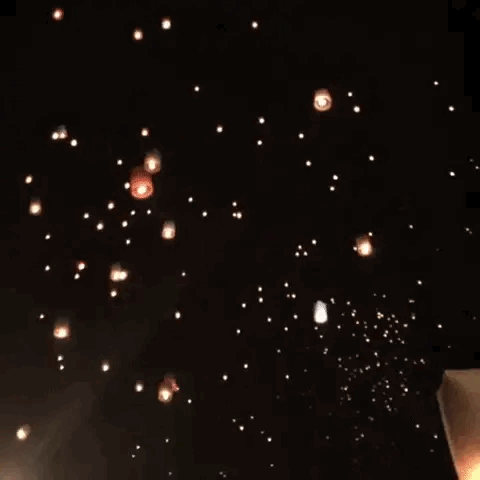
东风夜放花千树,更吹落、星如雨。
The streets are lighted with vibrant lanterns, like thousand of trees filled with many flowers. Fireworks light up the air, and they fall like a rain of stars.
宝马雕车香满路���凤箫声动,玉壶光转,一夜鱼龙舞。
Luxurious horse drawn carriage and fragrant perfumes permeate the street. The Fengxiao (reed flute) plays, the jade pot swirls; it is a night that’s as lively as the sea
T/N: the 玉壶 Jade Pot is a common symbolism in ancient poetry. It usually represents someone with a flawless and pure heart; someone who is honest and indifferent to fame and fortune. Sometimes, it also refers to the radiant moon. In this case, some translations have translated this to the pot, and others the moon. And I love the juxtaposition between the 凤 Phoenix and the 龙 Dragon. 😍 鱼龙舞 does mean a lively scene, but if you break the words down, it means the dance of the dragon and fish, which I think is a beautiful imagery.
蛾儿雪柳黄金缕,笑语盈盈暗香去。
With moths, winter willow and gold threads in their hair, the ladies laugh and their fragrance drift by.
A 蛾儿 (moth), 雪柳 (winter willow) were hair accessories that women would adorn in ancient times during the Chinese Lantern Festival.
众里寻他千百度,蓦然回首,那人却在,灯火阑珊处
I search for her thousands of times in the crowd. And when I turn back suddenly, she’s right there under the glow of the faint lantern light.
7 notes
·
View notes
Text
I Found You In The Shadows of The Lantern Glow
pairing: Obi-Wan Kenobi/Siri Tachi rating: general audiences word count: 2.9k ao3 • star wars masterlist

Summary: Carrying the weight of his deception, Obi-Wan Kenobi wanders Theed. Siri Tachi is on a mission, with the added burden of grief. The whole planet of Naboo is celebrating the Festival of Light, its streets overflowing with life, a dazzling spectacle to behold. Nights like this uncover more than just the beauties of the galaxy.
A/N: Story concept inspired by "Green Jade Festival - Lantern Festival” , a poem by Xin Qiji written in the Song dynasty.
眾裏尋他千百度,驀然回首,那人卻在,燈火闌珊處。 «青玉案·元夕» 辛棄疾 A thousand times, I searched for her in the crowds. When all of a sudden, I turned around, And saw her there in the dim lantern light. “Green Jade Festival - Lantern Festival” Xin Qiji
In one the many rooms of the Theed Royal Palace, two Jedi Masters convened, handling the aftermath of an undercover mission that successfully thwarted a devious Separatist plot to kidnap the Chancellor of the Republic.
“I guess I can’t put this off any longer.” Obi-Wan half-heartedly said, his chuckle uncharacteristically rough and low.
“That is indeed the case. Rako Hardeen’s voice in your body is an unsettling combination, Master Kenobi.” Mace Windu stood to the side of the room, his lips unmistakably curved upwards. Despite his stoic manner and composed temperament, he was unable to hide his amusement towards his colleague’s plight.
Sighing, Obi-Wan moved his wrist towards himself, tapping a few buttons on the screen of his communicator. A hazy blue projection popped up, displaying the words ‘Confirm Voice Modulator Ejection’ in a cool, fluorescent white.
“Well, let’s get this over with.” He looked over at Master Windu, hoping for some verbal support, only to be met with the same bemused grin.
The moment he hit select, the spider-like modulator began folding out its legs, making Obi-Wan cough at the sudden irritation in his throat. The modulator started its ascent from his larynx, crawling up, its metal claws digging into the walls of his neck. Obi-Wan forced himself to sit down on a chair, choking on the clawing contraption. Even the experience he had with the device when he first swallowed it down did not prepare him for the discomfort of it going out.
“Breathe through your nose, Obi-Wan.” Master Windu called out from where he stood, sympathetic.
Finally, in what felt like an eternity, the modulator fell out of his mouth and onto the floor, leaving Obi-Wan wheezing like a Boonta Eve podracer engine (and pilot) in its wake.
Master Windu placed a hand on Obi-Wan’s shoulder, steadying his reeling form.
Obi-Wan said between pants, “I hope I never have to do this again.”
“Thank the Force you’re not a Shadow, my friend.”
“Bless their souls.” Obi-Wan carefully rose from his chair, holding onto Mace Windu’s arm.
Droids, battlefields and Sith Lords had all wanted to render Jedi Master Obi-Wan Kenobi to such a deficient state, but a puny, little voice modulator beat them to it.
Such were the strange contradictions of the galaxy.

Siri Tachi was on a mission to gather intel on San Hill, the Chairman of the InterGalactic Banking Clan and heavy financial backer of Separatist forces. Her investigation led her to discover unusual monetary transactions between the banking clan and an unnamed party that peculiarly operated out of Naboo. The strangeness did not end there. With further digging, she found that all the assets involved in the exchange could be traced back to an account held by Damask Holdings, a Muunilinst entity that had dissolved years ago.
She managed to identify a broker who frequently worked with Hill. The middleman was native to Naboo, and was back on the planet, apparently for the Festival of Light. Siri found it quite ironic that a man who sold out the Republic for a living would be so committed to the holiday. Alas, analyzing the complex intricacies of human behavior was not a part of her job, and she followed him all the way to Theed with no further questions.
Siri waited in front of a fruit stall, pretending to check out fresh produce. She picked up a starfruit, but her focus wasn’t on its texture or weight. The stall was conveniently right across a candied Shuura stand, where her target was patiently standing in line. The man sure had a sweet tooth, Siri thought to herself, he’d already had Theed’s signature plasma cloud dessert and a Jogan fruit tart earlier.
Siri loved a good night out, but it was taking an awfully long time for this man to go back home, whose whereabouts Siri was trying to locate. She’d broken into his work office a few days ago, but couldn’t find the documents she was looking for. She figured he probably kept them somewhere closer.
Intel gathering missions normally took a considerable amount of time, and Siri was a forbearing woman, but she didn't like how this assignment was dragging on. This operation had been rough, and it wasn’t because of the nature of the task itself, though Siri wished it was.
She was meeting up with a contact in a seamy bar when she found out.
"Kenobi's fucking dead!"
"Remind me to give Rako Hardeen a call to congratulate him. Fucking mad lad, that one."
"A Jedi got knocked out by a sniper?"
"I'll drink to that!"
She remembered the laughter that had erupted, the boasts, the toasts, and the liberal flow of alcohol. She had a front row seat to the celebration of Obi-Wan Kenobi's murder.
She didn’t believe it at first, there was no way that Obi-Wan Kenobi, Jedi Master and General of the Grand Army of the Republic, could have been taken out by something as uncivilized as a blaster shot. That was not a death worthy of a man as insolent as Obi-Wan Kenobi. That was not how her crechemate, her dear friend, was supposed to go. But then she saw it on the Holonews the next day, bold and underlined. It wasn't a headline one could easily miss.
She had swallowed down her emotions upon hearing the confirmation. She had been in the middle of hacking into a computer terminal and security patrols could have stopped by her floor at any moment, she couldn’t afford to be distracted. It was just her luck that she’d had to find out through a television set left on after hours in an office building.
Even with the restraint of a Jedi, a part of her floated between utter disbelief and grief at the passing of Obi-Wan. Maybe it was because she was so far away from home when she found out, or maybe it was because she didn’t want to accept that he was gone, but the weight of Obi-Wan’s death hadn’t quite sunken in yet. She just wanted to finish up the mission and head back to the Temple. She knew she had to see his grave. His departure had been so sudden and so unthinkable , she needed to see a headstone, an engraving, something tangible , to understand that Obi-Wan Kenobi was truly, irrevocably, one with the force.
Her target happily munched on his candied Shuura. The confection was served on a stick, and the man eagerly rotated and adjusted the skewer to get new bites while ambling along the street. Siri continued trailing him.
Turning into a less busy road that led to more residential parts of Theed, Siri’s wishes were granted, the man was ready to turn in for the night. The pavements became dimmer and eventually began to lead up a hill. Benches lined the trail, occupied by doting couples. She was concerned that she would look out of place in what seemed to be a popular courting spot, but figured if she walked like she knew where she was going, it would appear that she was on her way to an intended destination.
Siri was thirty meters behind the dealer when he stopped at the top of the hill. Siri saw him crouch next to a tree, his bent form outlined by the glow of a lantern hanging from a branch, seemingly to catch his breath. She noted his unfit state and filed this piece of information away in a corner of her mind. Must be all the desserts, she considered.
By the time she reached the hilltop, the man was a quarter of the way along the trail that led downhill. There were less people on this path, and she figured continuing her pursuit would raise the man’s suspicions. She’d seen him glance backwards a few times, though not at her specifically. She had a pretty good view of the rows of houses beneath the hill from up here anyway. All she had to do to find his address was to keep an eye on him as he walked back to his house, a simple affair.
Hopefully, she would find the papers and contracts in his home tomorrow afternoon, then she’d be well on her way back to Coruscant by nightfall. She blinked away a few stray emotions at the thought of returning to the Temple. She wanted this mission to end, and she wanted to go home, but home wasn’t going to feel the same now, not anymore.
Siri leaned her arm against the tree. To any observer, it would look like she was admiring Theed’s nighttime cityscape. Standing in the shadow of a lantern's glow, she watched and waited.

Senator Padme Amidala had kindly invited the Jedi to join the official celebrations for the Festival of Light, extending their stay on Naboo. Mace Windu took pity on Obi-Wan for having to suffer through an excruciating voice modulator extraction, and offered to complete his administrative duties for him, giving him a well-deserved night off. Thus, Obi-Wan Kenobi found himself with a rare commodity in his hands, free time.
If one finds themselves in Theed during the Festival of Light, a spectacular commemoration of Naboo joining the Galactic Republic, not taking the opportunity to revel in the festivities would be a crime against merriment, and Obi-Wan was far from a criminal.
Strolling through a buzzing crowd, he reached into the force, feeling it hum with joy and happiness. The streets of Theed were teeming with life. Vendors set up shop along the roads, glow sticks and other festive ephemera brightly on display. Children ran after each other with their lanterns, the masses no barrier to their chase. Teenagers chattered in loud groups, exuding an air of wannabe maturity and jaunty spirit mixed with a sweeping undercurrent of angst, enjoying the prerogative of youth. They brought Obi-Wan back to his adolescence, which seemed to get further and further away with each passing day. He pondered when he had gotten so old. A small family walked by him, the parents carrying an infant, and Obi-Wan saw the little one’s eyes wide open in bewilderment, surely experiencing the magic of the festival for the first time.
No building was left undecorated, and festive streamers flowed down from every beam. The city was a kaleidoscope, and every turn of Obi-Wan's head revealed a different beauty. There was much to do, and plenty to admire.
The night sky was a flurry of colors. A mild East wind brushed past, and lanterns hanging from rooftops and tree branches swayed along its gentle current. Candle light flickered with the breeze’s delicate touch, causing the vibrant hues of the ornate lanterns to radiate outwards into a warm, fuzzy glow. The clacking of horses’ hooves blended in with the cheers of passersby as lavish carriages rolled across cobblestone, trailing behind handsome steeds. The notes of the flute danced brilliantly through the air, twirling and twisting, gracefully singing a Naboo folk song. A glimmering pearl revolved in midnight blue. The full moon shone brilliantly above the city.
The Naboo were known for their impeccable style, and tonight proved to Obi-Wan that it was no lie. Ladies dressed up to the nines walked the streets, draped in rich satin and decadent velvet. They adorned their hair in jade clips and ruby Millaflowers, its subtle fragrance following their laughter that echoed off tan walls.
The night was dazzling, yet Obi-Wan found himself drawn to the little things that hid behind the elaborate. He spied a dusty alleyway filled with old trinkets and skulking Loth cats, out on a prowl for dinner; a woman on a third-storey balcony was clipping wet clothes onto a clothing line, muttering something under her breath while sporadically casting disapproving glances into her apartment. Obi-Wan thought he saw a story there.
Walking further down the road, it began to take on a gentle gradient, and the crowds became thinner. Few lights lined the ascending path, and it could well be considered unilluminated compared to Theed’s main street. However, the darkness was not a deterrent, in fact, it may have been favored, as couples sat on dainty benches along the lane, exchanging whispers and shy blushes in the comfort of privacy gifted by the night.
Obi-Wan stood at the start of the trail, looking up to scan the small hill. Naboo’s climate was well suited to vegetation, and he imagined its grass covering to be a lush, verdant green under daylight. If he had time tomorrow, maybe he would come out here again and appreciate the knoll in its morning glory. It was an interesting sight to see in Theed, which was built mostly on flat terrain.
Obi-Wan’s glance reached the top of the hill. There, a single tree stood, the king of the mountain. Its leaves rustled in the wind, and its firm branches curled upwards into a crown.
Out of a sudden, he stopped his perusal, his vision zeroing in on an inclined figure beneath the tree. Opening up his senses, he felt a familiar signature hovering in the force. It was faint, but he recognized it immediately. After all, it wasn’t one he could easily forget.
Under the faint light of a lone lantern, Obi-Wan saw a wisp of blonde hair. He blinked a few times and took a second look to check that his eyes were not deceiving him. They weren’t, it was the undeniable outline of the person he held dear.
There, far away from the crowds and the action, standing on a dimly lit hilltop, was Siri Tachi.
Council members were, reasonably, not privy to every ongoing operation in the Order. Obi-Wan had not expected to find Siri in Theed during the Festival of Lights. His face fell when he realized that the last time they spoke was through a brief comcall a week before he transformed himself into Rako Hardeen. Obi-Wan’s faked death had spread like wildfire, especially among the more objectionable circles that pestered the galaxy. His heart clenched at the thought of the news reaching Siri, who likely would have been in character on a mission. That wasn’t how he’d hoped the person he cared deeply about to find out about his demise, and it pained him that he had probably put her through more emotional turmoil in already precarious circumstances.
Obi-Wan stayed planted to the spot, unsure of what to do next. He wondered if going to her and opening up with a simple ‘Hello there’ would be appropriate, though an apology would probably be better suited. People thought dead turning up alive again were generally not met with warm hugs or pure elation. Shock, confusion, then a rightfully deserved angry tirade would likely be his fate if he did approach her, Anakin had served him the same dish prior.
Siri’s presence was calming to Obi-Wan, its familiarity was grounding, and carrying the weight of his deception on his shoulders, Obi-Wan needed the solace. As much as he wanted to stay in her presence a little longer, even without her knowing, Obi-Wan knew that walking away would make a wiser choice. He wanted nothing more than to see his friend again, to show her that he was alright, but that would be selfish of him. This wasn’t the right time or place to deal with the elephant in the room that was his status of being. This setting wasn’t conducive to delivering a tasteful exposé, the kind of reveal that Siri deserved.
He took in Siri’s form one more time, her frame illuminated by a soft, golden glow of a lantern. To him, her stance aired strength and focus, two qualities that always left Obi-Wan enamored.
Just as he was ready to leave, the figure on top of the hill turned to his direction. He remained where he was, unable to move away, transfixed by a silhouette’s stare.
They couldn’t see each other’s faces, but they were sure their eyes met.
Out of the blue, in dim light and haze, Lost lovers stood, entranced in their gaze. They found each other, to have not to hold, In the faint shadows of the lantern glow.

«青玉案·元夕» 辛棄疾 東風夜放花千樹。更吹落、星如雨。寶馬雕車香滿路。鳳簫聲動,玉壺光轉,一夜魚龍舞。 蛾兒雪柳黃金縷。笑語盈盈暗香去。眾裏尋他千百度。驀然回首,那人卻在,燈火闌珊處。 “Green Jade Festival - Lantern Festival” Xin Qiji At night, an East wind brushes past. Lanterns hang like flowers on trees, sparkling and vivid. Lantern light casts down on the streets like a shower of stars. Lavish carriages and handsome steeds roll across the roads. Splendid music spreads through the air, The moon revolves slowly in the sky. The dragon dance unfolds all through the night. In fine silk, with jade clips and ornaments, Ladies leave a trail of giggles and perfume. A thousand times, I searched for her in the crowds. When all of a sudden, I turned around, And saw her there in the dim lantern light.
#star wars#star wars fanfiction#fanfiction#obi wan kenobi#obi wan kenobi fanfiction#obi-wan kenobi#siri tachi#siri tachi fanfiction#obi wan x siri#siriwan#clone wars#star wars: the clone wars#star wars legends#swtcw#prequel trilogy#rako hardeen#mace windu#padme amidala#anakin skywalker#san hill#sheev palpatine#chinese literature#lantern festival#undercover#chinese poetry
4 notes
·
View notes
Text
丑奴儿·书博山道中壁 - To the tune of Ugly Girlie · Written on the wall along Mount Bo’s path
by 辛弃疾 (Xin Qiji, 1140 to 1207)
少年不识愁滋味 shào nián bù shí chóu zī wèi A youth, once unacquainted with the tang of sorrow,
爱上层楼 ài shàng céng lóu liked climbing tall towers…
爱上层楼 ài shàng céng lóu liked climbing tall towers
为赋新词强说愁 wèi fù xīn cí qiáng shuō chóu to craft fresh lyrics by contriving sorrow,
而今识尽愁滋味 Érjīn shí jǐn chóu zīwèi now acquainted with a myriad flavours of sorrow,
欲说还休 yù shuō huán xiū suppresses the urge to speak…
欲说还休 yù shuō huán xiū suppresses the urge to speak,
却道天凉好个秋 què dào tiān liáng hǎo gè qiū remarking instead, 'It's a cool day, what a fine Autumn!'.
.................................................................................
N O T E S
(I’m trying something slightly different for the Song Dynasty folks. Digging is fun but very tiring for my Tang ladies and gentlemen LOL.)
A note on the title: The tune pattern / cipai 丑奴儿 is the same as 采桑子, for which it was more popularly known. This likely originated from one or two popular tunes from the Tang Dynasty's Royal Academy with similar names like 采桑 Picking Mulberry and 杨下采桑 Picking Mulberry 'Neath the Poplars. Given that the alternative name is something so iconically done by girls, I couldn't quite get the idea that 丑奴儿 is something like the equivalent of 'rascal' for girls LOL. So Ugly Girlie it is xD (sorrynotsorry).
So in the post for his poem, 青玉案·元夕- Green Jadeite Platter · Fifteenth Day of New Year, we’ve talked touched briefly on Xin Qiji’s childhood raised by his grandfather in Jin territory, how he rebelled and returned to Song, only to be met with obstacle upon obstacle, and eventually withdrew from politics, settling in Shangrao in his 40s. The year is 1181, and for the next twenty years or so, he continued to live there. We can get to know this period in his life from a couple of other poems, so let’s talk about that another time! :D
Why 上饶 Shangrao is relevant for our poem today, if you’d take a look at the photo below, is because Boshan i.e. Mount Bo is relatively nearby. And even today, it’s a place recommended for travel and sightseeing holidays (and every single one of the five articles I opened mentions Xin Qiji lmao).

Source
He visited Boshan often and was friendly with the monks at Boshan Temple. How friendly was he? They set aside a reading room for him - I couldn't find any photos, but wikipedia implies that the temple has marked out the place which can still be visited. He also wrote about them quite a bit, and so then it makes a lot of sense that he would casually brush a little reflective lyric there.
I was laughing at his self awareness with the whole ‘climbing tall towers and forcing some feelings to write better lines’ (what a mood!) wondering if he’d ever written about going up on a tower literally, possibly before this point in life. Well…
鹧鸪天·欲上高楼去避愁 - To the tune of Day of the Partridge · Perhaps the tall tower is a place to dodge sorrows by Xin Qiji
欲上高楼去避愁 | Perhaps the tall tower is a place to dodge sorrows. 愁还随我上高楼 | But still, these sorrows, up the tall tower they do follow. 经行几处江山改 | The landscape where I've passed has utterly changed, 多少亲朋尽白头 | and many are the friends and family with white in their hair. 归休去 去归休 | Go retire and return, retire and go home. 不成人总要封侯 | Must every man naturally achieve their merits and title? 浮云出处元无定 | The drifting clouds have never been asked their place, 得似浮云也自由 | we ought to be as those clouds that drift so freeeeeee.
(Yeah, sounds like he’s had it and is ready to go.)
On the baidu page for the main poem of today, a dude named Zhuo Renyue who lived during the Ming Dynasty commented in his anthology where this piece was included, 'Earlier it was forcing (himself) to speak, afterwards it was forcing (himself) not to speak.
So gently wry and ironic!
#丑奴儿·书博山道中壁#辛弃疾#Xin Qiji where is your haofang style rep going#why is everything i've seen out of you the opposite of that LMAO
12 notes
·
View notes
Text
"Kill them with kindness" Wrong. CURSE OF MINATOMO NO YORITOMO
アイウエオカキクケコガギグゲゴサシスセソザジズゼゾタチツテトダ ヂ ヅ デ ドナニヌネノハヒフヘホバ ビ ブ ベ ボパ ピ プ ペ ポマミムメモヤユヨrラリルレロワヰヱヲあいうえおかきくけこさしすせそたちつてとなにぬねのはひふへほまみむめもやゆよらりるれろわゐゑを日一国会人年大十二本中長出三同時政事自行社見月分議後前民生連五発間対上部東者党地合市業内相方四定今回新場金員九入選立開手米力学問高代明実円関決子動京全目表戦経通外最言氏現理調体化田当八六約主題下首意法不来作性的要用制治度務強気小七成期公持野協取都和統以機平総加山思家話世受区領多県続進正安設保改数記院女初北午指権心界支第産結百派点教報済書府活原先共得解名交資予川向際査勝面委告軍文反元重近千考判認画海参売利組知案道信策集在件団別物側任引使求所次水半品昨論計死官増係感特情投示変打男基私各始島直両朝革価式確村提運終挙果西勢減台広容必応演電歳住争談能無再位置企真流格有疑口過局少放税検藤町常校料沢裁状工建語球営空職証土与急止送援供可役構木割聞身費付施切由説転食比難防補車優夫研収断井何南石足違消境神番規術護展態導鮮備宅害配副算視条幹独警宮究育席輸訪楽起万着乗店述残想線率病農州武声質念待試族象銀域助労例衛然早張映限親額監環験追審商葉義伝働形景落欧担好退準賞訴辺造英被株頭技低毎医復仕去姿味負閣韓渡失移差衆個門写評課末守若脳極種美岡影命含福蔵量望松非撃佐核観察整段横融型白深字答夜製票況音申様財港識注呼渉達良響阪帰針専推谷古候史天階程満敗管値歌買突兵接請器士光討路悪科攻崎督授催細効図週積丸他及湾録処省旧室憲太橋歩離岸客風紙激否周師摘材登系批郎母易健黒火戸速存花春飛殺央券赤号単盟座青破編捜竹除完降超責並療従右修捕隊危採織森競拡故館振給屋介読弁根色友苦就迎走販園具左異歴辞将秋因献厳馬愛幅休維富浜父遺彼般未塁貿講邦舞林装諸夏素亡劇河遣航抗冷模雄適婦鉄寄益込顔緊類児余禁印逆王返標換久短油妻暴輪占宣背昭廃植熱宿薬伊江清習険頼僚覚吉盛船倍均億途圧芸許皇臨踏駅署抜壊債便伸留罪停興爆陸玉源儀波創障継筋狙帯延羽努固闘精則葬乱避普散司康測豊洋静善逮婚厚喜齢囲卒迫略承浮惑崩順紀聴脱旅絶級幸岩練押軽倒了庁博城患締等救執層版老令角絡損房募曲撤裏払削密庭徒措仏績築貨志混載昇池陣我勤為血遅抑幕居染温雑招奈季困星傷永択秀著徴誌庫弾償刊像功拠香欠更秘拒刑坂刻底賛塚致抱繰服犯尾描布恐寺鈴盤息宇項喪伴遠養懸戻街巨震願絵希越契掲躍棄欲痛触邸依籍汚縮還枚属笑互複慮郵束仲栄札枠似夕恵板列露沖探逃借緩節需骨射傾届曜遊迷夢巻購揮君燃充雨閉緒跡包駐貢鹿弱却端賃折紹獲郡併草徹飲貴埼衝焦奪雇災浦暮替析預焼簡譲称肉納樹挑章臓律誘紛貸至宗促慎控贈智握照宙酒俊銭薄堂渋群銃悲秒操携奥診詰託晴撮誕侵括掛謝双孝刺到駆寝透津壁稲仮暗裂敏鳥純是飯排裕堅訳盗芝綱吸典賀扱顧弘看訟戒祉誉歓勉奏勧騒翌陽閥甲快縄片郷敬揺免既薦隣悩華泉御範隠冬徳皮哲漁杉里釈己荒貯硬妥威豪熊歯滞微隆埋症暫忠倉昼茶彦肝柱喚沿妙唱祭袋阿索誠忘襲雪筆吹訓懇浴俳童宝柄驚麻封胸娘砂李塩浩誤剤瀬趣陥斎貫仙慰賢序弟旬腕兼聖旨即洗柳舎偽較覇兆床畑慣詳毛緑尊抵脅祝礼窓柔茂犠旗距雅飾網竜詩昔繁殿濃翼牛茨潟敵魅嫌魚斉液貧敷擁衣肩圏零酸兄罰怒滅泳礎腐祖幼脚菱荷潮梅泊尽杯僕桜滑孤黄煕炎賠句寿鋼頑甘臣鎖彩摩浅励掃雲掘縦輝蓄軸巡疲稼瞬捨皆砲軟噴沈誇祥牲秩帝宏唆鳴阻泰賄撲凍堀腹菊絞乳煙縁唯膨矢耐恋塾漏紅慶猛芳懲郊剣腰炭踊幌彰棋丁冊恒眠揚冒之勇曽械倫陳憶怖犬菜耳潜珍
“kill them with kindness” Wrong. CURSE OF RA 𓀀 𓀁 𓀂 𓀃 𓀄 𓀅 𓀆 𓀇 𓀈 𓀉 𓀊 𓀋 𓀌 𓀍 𓀎 𓀏 𓀐 𓀑 𓀒 𓀓 𓀔 𓀕 𓀖 𓀗 𓀘 𓀙 𓀚 𓀛 𓀜 𓀝 𓀞 𓀟 𓀠 𓀡 𓀢 𓀣 𓀤 𓀥 𓀦 𓀧 𓀨 𓀩 𓀪 𓀫 𓀬 𓀭 𓀮 𓀯 𓀰 𓀱 𓀲 𓀳 𓀴 ���� 𓀶 𓀷 𓀸 𓀹 𓀺 𓀻 𓀼 𓀽 𓀾 𓀿 𓁀 𓁁 𓁂 𓁃 𓁄 𓁅 𓁆 𓁇 𓁈 𓁉 𓁊 𓁋 𓁌 𓁍 𓁎 𓁏 𓁐 𓁑 𓀄 𓀅 𓀆
185K notes
·
View notes
Text
--深海人形-- シロッコ(をトレーナーさんみたいに)調教(する)物語
※閲覧注意
※話題雑多
※キャラ崩壊注意
※後半クロスオーバーネタ注意
※どうせ切ない話になる(※確信)。
何故私が死なず(死因問わず)に、あの人達は死んでしまったのだろう。聖賢達は去って行く。
…。
天か世界に拒絶されるか天が望まない、天の視点で間違った人生を送れば、ヒトは迅速に此の世界から解放される事が出来るのだろうか?
…。
あんな救いの無い哀しくて切ない話を書く様になったの、殆ど歴代名作(※古典)ゲーム(※特に、アイレムシュー、R-TYPEシリーズ、EVACシュー、サイキックフォースシリーズ、タイトーシュー、トレジャーシュー、ライジング・エイティングシュー、)か某艦船擬人化ゲームと其の史実か桃玉シリーズ(※タッチ!〜Wii以降)の所為としか言えない(※真顔)。
…。
実はね〜〜Xにはね〜〜全てのツイートをダウンロードして所得出来る機能があるんだ〜〜(※超小声)。
ttps://help.x.com/ja/managing-your-account/how-to-download-your-x-archive
…。
現実にもソロモン諸島ってあるんだよね。日米戦争の激戦地として、史実に記録されて居る(※ソロモン宙域の名も其処から来ました)。
更には、ガダルカナル島の略称として、ガ島(餓島)があります。如何やらガトーの名も其処から来て居るっぽい(※ガトー=ガダルカナル説)。
…。
…ねぇ、ワイ、もう、思わず、寂しくなって、哀しくなって、切なくなる様な話描くの辞めない?…『星羅』と『ボクは許さない』の時、描いてる途中でマジで涙が止まらなくなる位、心がキツかったし哀しくなったじゃん?(※自己問答)。
…。
はいねす様は秋刀魚缶を酷い扱いして道具みたいにコキ使うのに、其れでも、ちゃんと第三形態でフレンズ転がりは出来るから、マジではいねす様と秋刀魚缶の間柄と絆分かんねぇよな(※…何か、泣けて来た……)。
…。
シロッコは『(彼なりに)高潔で捉えどころのない性格が扱いづらい(※やる夫wikiの解説より)』だけど、ワイが調教したら、拙作内で重宝される(※スタアラのイカタマかたまのりピエロ並)位に、コキ使われる、とても有能なトンデモ豚野郎(※おじさん)になった(※調教大成功)。
…。
余りに扱い辛過ぎて調教を諦めざるを得なかったり、ヴァルキルの作者すら難儀したであろう其れを完遂するコツ?
彼奴の事は宇宙世紀のイカサマたまごか何かと思うと上手く行くよ(※ksみたいなアドバイス)。
…。
…シロッコ、ヤザン、シーマ様、ガトー、拙作ではフレンズ転がり出来る位仲が良いよ、彼奴等(※但し、謎平和次元でのみ)。
…。
カービィシリーズ、Wii以降の特徴で面白いと思った奴
・ハルカンドラ関係、アナザーディメンジョン関係になると、其れ迄と打って変わって曲調とステージの空気が剣呑、真剣なモノになる(※此の物語の醸し出し方と演出により、ハルカンドラ関係は世界観的にも触れてはならない禁忌・タブー故に一部の人々からはとても恋しく魅力的に映るのだな、…と言う事が分かる)。
…。
白い水着は透けるって言われてるじゃん?…でもなぁ……白い水着でも!白い服でもなぁ!透けネぇんだよ!宇宙世紀の科学力は凄いから(?)。
※「宇宙世紀位の科学力が無いと透けない服作れないの?(真顔)。」…とは聞いてはならない(※実際もうあるよ)。
あっでも白い褌は透けます(※聞いてるか!?其処のガトー!!!!!!!!!)。
…。
パーフェクト(完徳者)ガトー
完徳者の語は、中世欧州に端を発する異端の一派カタリ派において、厳格な戒律を守り信仰生活において模範的な人物を指す。
彼等カタリ派は、正統派から異端として度重なる迫害を受けたが、完徳者はその中でも特に尊敬され、信仰の中心的な存在とされた。
もしかしたら、フルアーマー ガトーも居るかもしれないが、そんなのはっきり言って如何でも良い(※適当)。
おっちゃんの��多い派生の一部として名の知れて居るパーフェクトとフルアーマーと言う概念で何かネタ拵えたかったけど出来無かった(※無能ですまん……)。
…。
閣下(各所に電話中)「もしもし、儂だ!ガトーの今の居場所を知らんか?」
シーマ様「ガトー?アタシの隣で寝てるさね。」
閣下「はい?」
シーマ様「ほら、電話に出なよ。」
…。
スーパーコーディネーターの准将は、人工子宮で育ったから、生物めいた胎の中よりも狭くて暗い機械の中の方が落ち着くんだろうな(※ストライクのコックピットで寝泊まり以上に其処で大半の生活してたのも、断片的に"昔を思い出して居た"からなんだろう(※…で、個人的にはシロッコも其うだと良いなと思ってる)。
…。
彩京ゲーはストライカーズ1945初代が好きです(※脱衣麻雀とか知らないです)。
…。
調教したらしただけ良い声で鳴く(※元々から良い声です)。
…。
プルム、訃、シャロンやエリアのですら公式水着絵はあるのに、七瀬だけ無いの何でだろうね??(※逆に、ブレア御嬢様のは、公式のカレンダー壁紙コーナーで描かれまくってる)。
…。
※…ま〜た、…切ない話描いてるよ(※読んでて哀しくなる様な話位しか描けない能無しだから描いた)。
※以下、某えろバレー風パロ注意
※自分のきょうだい(※カイリor訃)に殺された筈の七瀬が常夏の楽園に流れ着いた話(※水着七瀬の振り向き後ろ姿描いてた時のDOAXVVめいた妄想が執筆のきっかけ)。
七瀬の楽園みたいな辺獄(リンボ)
「貴方がオーナーさんですね!どうかよろしくおねがいします!七瀬です!!」
…嗚呼、君が新人の七瀬ちゃんって子だね。此方こそよろしく!
招待され、此の常夏の楽園に新入ゲストとして入って来た七瀬をオーナーである貴方は迎え入れる。そして、先に此の島に来て、バカンスを満喫して居る、七瀬と同じ様に招待された他の子達も彼女を歓迎した。
…。
やがて、七瀬は、すぐにオーナー達や招待された子達とも打ち解け、色々な話をする様になった。
「…ねぇ、七瀬ちゃんに兄弟は居るの?」
…誰に対しても、其う言うのは、あんまり聞かない方が良い……。
「いや、別に良いんだよ!其う言うのは!!…でね!…私には、兄と姉が居るんです。…兄様と姉様も其うだけど、家族の皆、とっても、強くて、素敵で……逞しくて!」
其う、少しだけ、辿々しく七瀬は明らかに、少し、無理をしながら答える。
「…其うなの?…其れなら、時々実家に帰ってあげた方が良いと思うの。」
「…うん!時々は其うしようと思ってる!」
其の時、彼女がして居た表情は、とても苦々しいモノだった。
…あーぁ。駄目だね。此りゃ。デリカシーが無さ過ぎる。質問者に。
オーナーは、陰ながら、質問者の女子に呆れた。流石のオーナーでも、此の空気読め無さは如何か?…と、思ったらしい。
…。
あれから、季節は夏になり、七瀬も楽園での生活に慣れた頃。
七瀬は、二人だけの、夕暮れの中で、オーナーに打ち明ける。
「私、実は一度殺されたんです。身内に。」
…身内に?
「…オーナーさんに会えて本当に良かった。ずっとここ住みで良いかな。私の代わりは、もう用意されて居るだろうし……。」
…代わり?…用意?
----代わりは、もう用意されて居るだろうし……。
オーナーは、其の言葉を、酷く、悍ましく感じた。さて、其んなオーナーに関わらず、七瀬は続けて言う。
「…『あれから』ね、"水神 七瀬"は世界の何処にも居ては行けなくなったんだから。本来はね。…でもね、此処は違うみたい。…楽しくて、風が穏やかで、過ごし易くて、命の危険も無くて、…そして、私が私として何の制限も無く居られる場所だなんて……感謝しても仕切れない位……有難いよ。」
…何て重い……。
「だけどね、もう兄様と姉様の事は諦めたし……。ずっとオーナーさんと一緒に居る!!」
其う言うと、彼女は、オーナーを、真正面から、ムギュッと抱き締める。
「大好き!!ずっと此の島に居ようね!私、オーナーさんから一生離れないから!!」
…。
※モブキャラ注意
※宇宙(そら)から常夏の楽園(ソロモン)諸島に落ちて来た生粋宇宙人(スペースノイド)の悪夢
天に帰りたい
「…ねぇ、オーナー。…あれって、流れ星?隕石?」
…案外宇宙人かもよ?
その日、ノイエ・ジールの一人乗り用の脱出ポッドが地上に落下した。
其んな中、暫くしてから、其の中からやっと一人の青年が出て来る。若くて麗しい見た目の。…そして、彼は周囲を見渡す。
「…此処は何処だ?…地球の南海域にある零細島嶼国か。…だが、如何なって居るのだ?…大体、我がジオンによるコロニー落としでの海面上昇によって其の殆どが海に沈んで居る筈だが……、まぁ此うして生環出来て居るだけで僥倖としよう。…ふぅ、暑い。」
----此処で力尽きて死ぬ訳には行かない。生きたい。何としてでも、生きたい。
生きて、再びニナ、カリウス、ケリィに会いたい。閣下の死を閣下縁りの場所で同志達と悼みたい。…其れに、ウラキ……。
…其うして、幾度の激戦を経て大破疲弊したMSの様にボロボロの体を引き���る様に動かして、何とか、生きながら得ようとリゾート施設のある地点付近迄歩いて来たが、其処で力付きた。
…。
「無事ですか?!瀕死の御兄さん?!」
あれから、ガトーは死に行く程の疲れと消耗で倒れた所を保護され、リゾート地の敷地内で目を覚ました。
「…私は未だ生きて居るのか?」
「はい!ちゃんと生きてます!オーナー!瀕死の人がやっと目を覚ましましたよ!!!!」
其れから、身寄りも帰る場所も無いので住み込みでオーナーの所で働く様になったガトーは色々な事に驚いた。時代が、兎に角、過去で、かつての国家が現役で存在しており、年号がU.Cでは無く、西暦--A.Dである事、(宇宙に余裕で住める時代のレベルから見ればだが)原始的な迄に機械技術が発達していない事……。
其れ程良くない彼の頭でも、確実に理解出来た事が一つだけあった。
----如何足掻いても、宇宙世紀には帰れない。
次元渡航技術、其れにタイムマシンなぞ何処にも無い。もう宇宙世紀には帰れない。
帰りたい。…でも、帰れない。
只管、望郷の思いを強く胸に抱き星空(そら)を見る毎日。戦争で出来たPTSDと古傷が疼いて酷く傷んで静かに、紳士的に泣く日もあった。一人で孤独にも。
…。
あれから、島に来て数ヶ月が経って居た。其んな中、宇宙人(スペースノイド)のガトーは、島での先輩(?)で、島に居たとある自分と同じ時代を生きて居た地球人(アースノイド)の男(顔面偏差値10)に、地球での振る舞い方を教わったが、余り参考にならなかった。
其れ最大原因は、気質が真逆と言って良い程正反対だったからだろう。実際、代々朝廷や幕府に仕える西洋の騎士(ナイト)然とした格調高いサムライ、武士然としたガトーとは違い、其のアースノイドは室町、戦国時代の野党の様に粗野であった。そして、凄くチャラい。快楽、享楽主義で、スペースノイドの行末の為に立ち上がった憂国者(※但し、ガチの屑)のガトーと、まるで相容れない。
其れから、其のアースノイドは、とても"宇宙世紀と言う名の地獄"から脱出出来た事を喜んで居り、偽名を名乗る必要が無くて最高、過去の経歴を気にせず好きに生きて良いだの、天然肉も酒も女も食い放題!…だのと、宇宙世紀に帰りたくて帰りたくて仕方無いガトーの気と癪に障る様に言い触らして居た。
…。
其れは、ある夜の宴会での一幕。
「あぁ、何だぁ?!戦いが無いから楽しく無ぇのか?!ジオンの軍人さんよぉ?!!」
又彼奴が酒の席で絡んで来た。私が大嫌い彼奴だ。思想が無くて何時もフラフラして居るノンポリのアースノイド。
「其う言う話では無い。此の俗物が。」
何時もの様に軽蔑した態度で私は吐き捨てる。だが、彼奴は其んな私の肩をバンバン叩き、陽気な迄に私へ執拗にウザ絡みして来る。…顔も性格も酷く悪辣で醜悪極まりないし、何なのだ?此の下衆は?
「U.C(宇宙世紀)なんて時代に帰って何になる?いつも情勢は不安定でドンパチしかしてねぇじゃねぇか?…だが、此処はずっと平和。逆に言えば退屈だ。…でも、俺は戦いは辞めた。莫迦莫迦しい。全部あの自分の過去に関わる事は諦めたよ。…で、お前は何故わざわざ戦争ばかりの地獄みたいな時代に帰りたいんだ?…何でだよ?」
其処で、私は、力を込めて少し大きめの音量で、此う言った。
「其れでも守らなければならない世界が、私にはあるのだ!」
其う私が言うと、余りの場違いな言動に、一同は大爆笑する。
「良いねぇ!矢っ張り、酔ってると!肩透かし間違い無しの、格好良い事もすんなり言えて!」
…嗚呼、莫迦みたいだ。又、大真面目に自らの夢を蒸して言ってしまった。
…なので、宴会が終わる迄、途轍も無く恥ずかしくて顔を上げる事が出来なかった。
…、
其れから時が経ち、やがて、宴会が終わると、私は深夜の砂浜で一人になって、満点の星空の下を見てボーッとしながら未来と宇宙の果てへ思念を馳せた。
…、
我が出生コロニー、サイド3。そして、ジオン公国。
今の私は、故国へ帰る航路も分からず、羅針盤も海図も無く、波間さすらう難破船の様。
あの時代に、宇宙(そら)に帰りたい。此の時代では無いのだ。…私の故郷は地球では無いのだ。土の大地では無いのだ。人類自体の故郷は地球なのかもしれないが、宇宙人(スペースノイド)の故郷は、地球では無い、宇宙(そら)なのだ。
…。
0 notes
Text
元宵节
今早刚背完床板,爸爸反常地打来了视频电话,睡眼惺忪接起来看,他在给我展示老家城市里元宵节街游,我们那里叫闹红火。
传统节日里元宵节在我心里排名数一数二,我其实并不喜欢过年,过年像是要去汇报工作,准备丰盛,要见许多人,要准备许多presentations,从头到尾要把自己包装一遍,好给一些甚至都不是自己甲方的人看。你说家族聚餐什么时候能穿着拖鞋一起吃顿方便面磕磕瓜子,是不是也挺美。
元宵节不一样啊,过元宵,才有许多的real family time和me time。这个节日是过年这场party的收尾项目,像是狂欢后的存续,热闹,但劲儿不大,大家在初七后的几天里也收心了/
我觉得元宵节的诗词里,写得最美的是《青玉案·元夕》,东风夜放花千树,更吹落,星如雨。 寥寥几句里,热闹和落寞一对反义词摆在一起毫不违和。
我看到这几句的时候,想到的就是我经历过的元宵节。算起来我的元宵节应该是从高二那年就结束了。其实说起来非常的残酷,我们能与父母家人呆在一起的时间非常少。哪怕是一些稀松平常的日子,也会在你长大离巢的一刻悄无声息的结束。
小时候我们县城里的十五,也是热闹非凡,我印象最深的就是今天爸爸给我发的闹红火的活动,但我小时候并不喜欢,因为太吵了,可谓锣鼓喧天、鞭炮齐鸣,还有一些化妆很怪的丑角也好、秧歌队也好,在街上游街,轮番上阵,大展才华,还有踩高跷扭秧歌的队伍,光怪陆离好似群魔乱舞,给我幼小的内心留下了不小的阴影。
再说说汤圆,我们其实吃的是元宵,记得有一年大家围坐在一起,奶奶手中有一个篦子,里面是糯米粉,元宵就在她手中上下翻斗中诞生。但我也真的不爱吃元宵,小时候对这种糯唧唧的东西非常反感,因为嚼不烂还咽不下去,所以吃到最后就会哇一下全yue了出来。
元宵节除了白天的红火,重头节目其实是看花灯。在元宵当天,全县城的人、全城的人都出动,各自约三五好友,或者与亲人相伴,腿着上街看花灯。印象最深的花灯,是在移民长治的头一两年。妈妈和爸爸两地工作,所以带我去看灯的是爸爸,他负责组织和照顾年幼的我和略微年迈的爷爷奶奶。我们三个就从广场开始,一路向东慢慢挪动。花灯是什么样我早忘记了,就是记得城里果然不一样,技术还是领先县城的,那段路怎么那么长,我好累,其实那段路约莫一公里不到,小时候腿短,不仅觉得路长,还觉得行人高大,一路走过去,面对的一直是黑压压的人群背影,小小的我拽着爸爸的手,迷迷糊糊走完那漫长的花灯路。
0 notes
Video
youtube
众里寻她千百度,蓦然回首,那人却在,灯火阑珊处。 --英译 辛弃疾《青玉案·元夕》
When I turn my head, I see her in dim light, always at my back!
Fred Liu's translation of Xin Qi Ji's "the Jade Desk".
0 notes